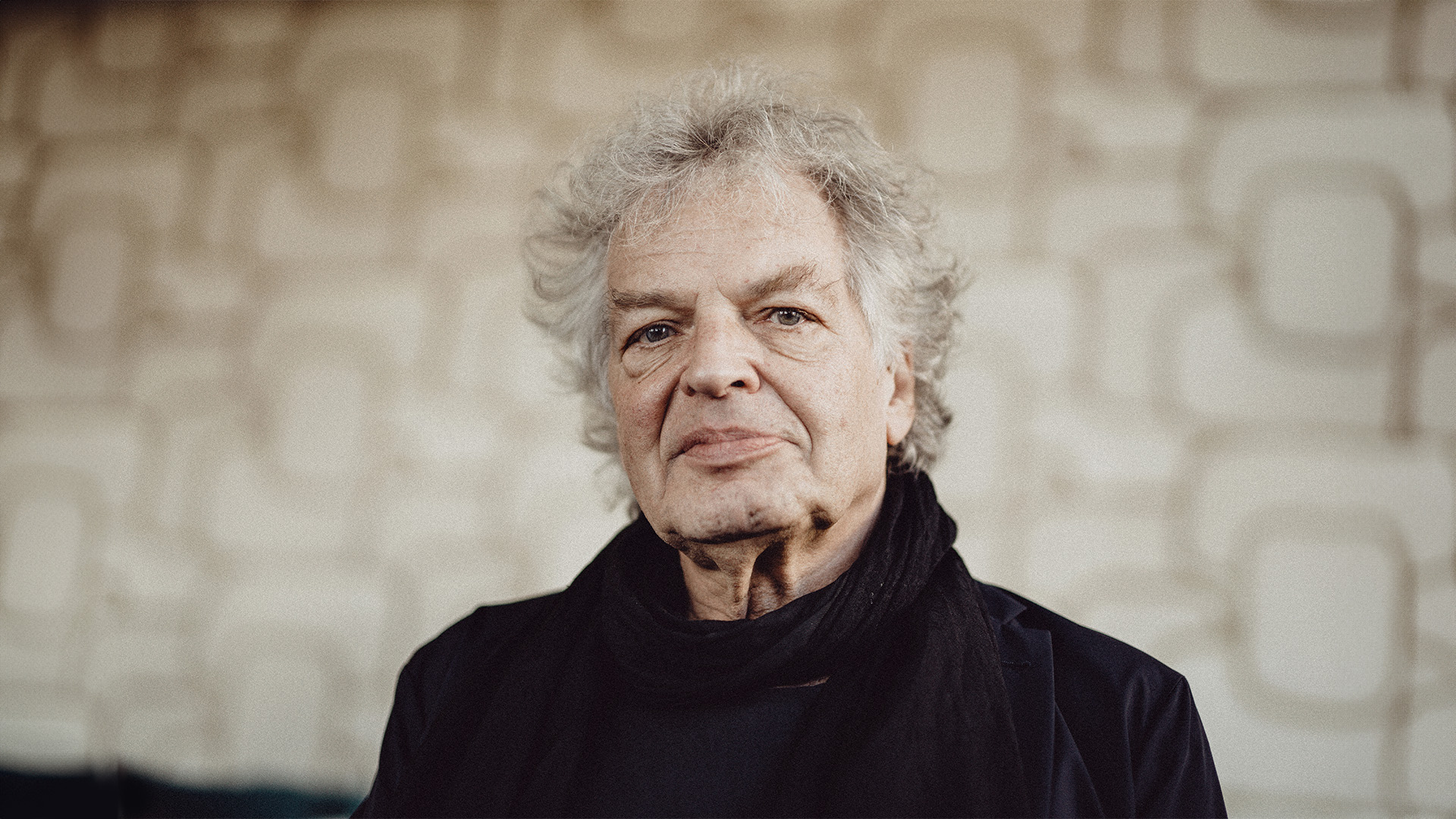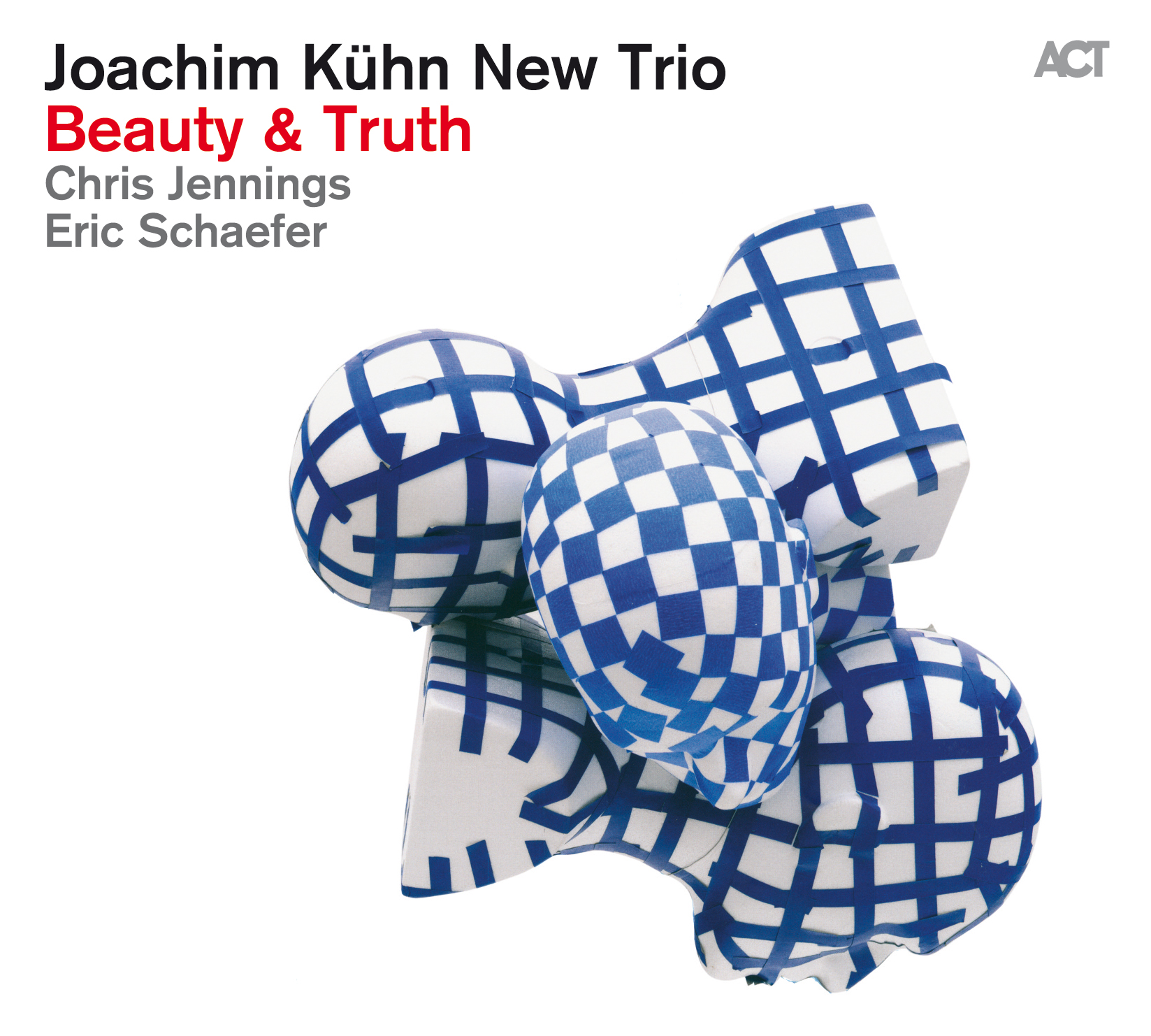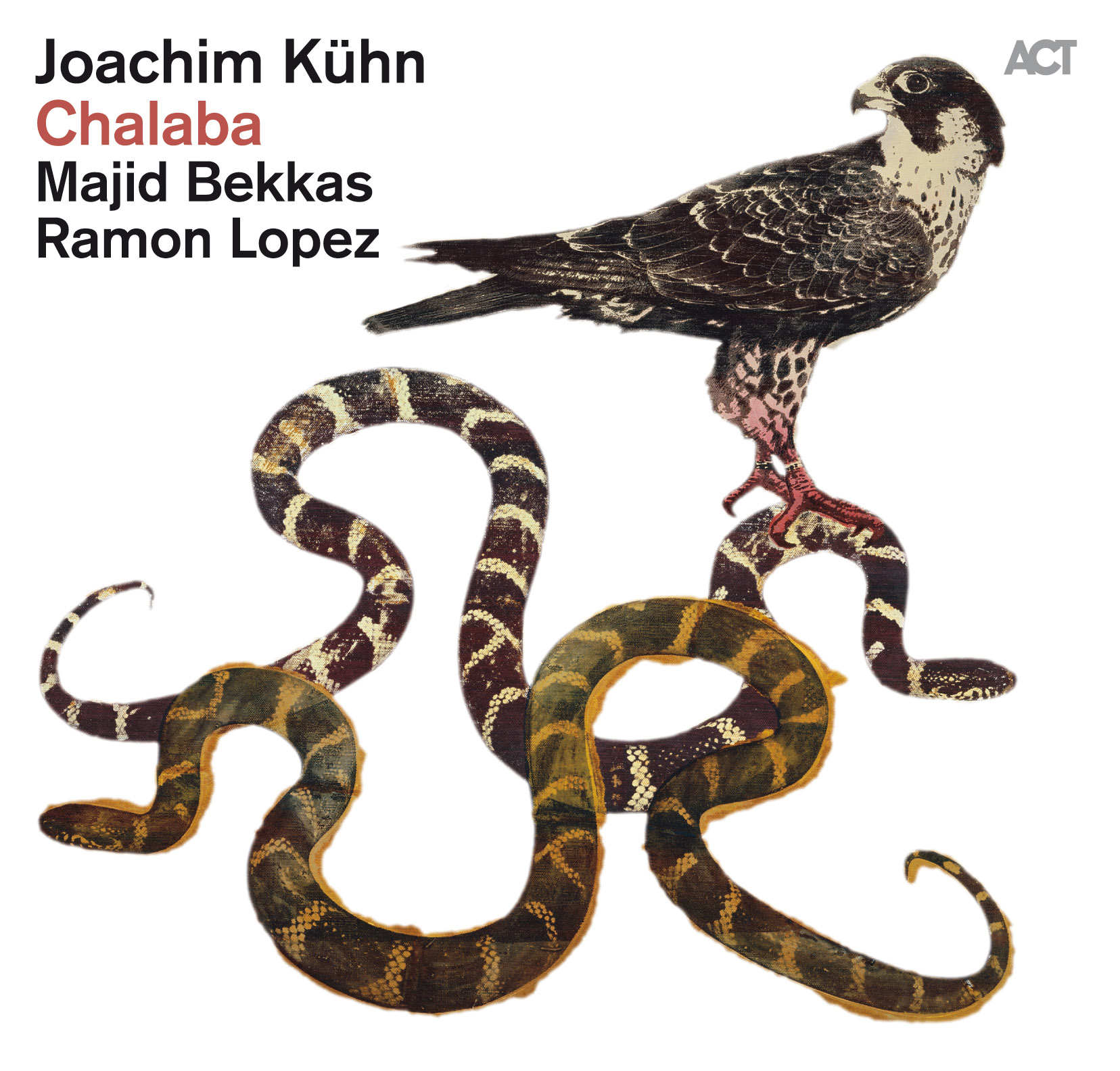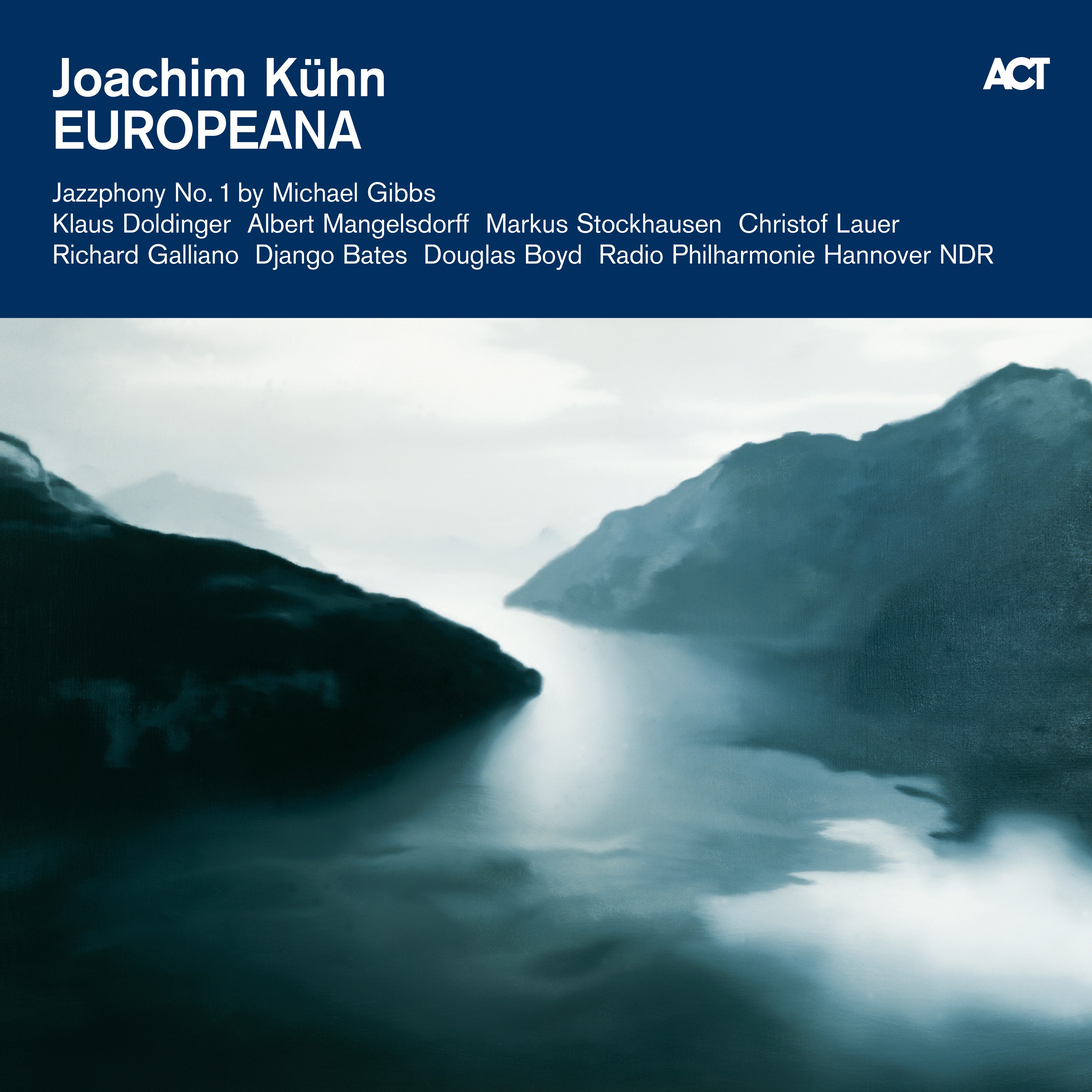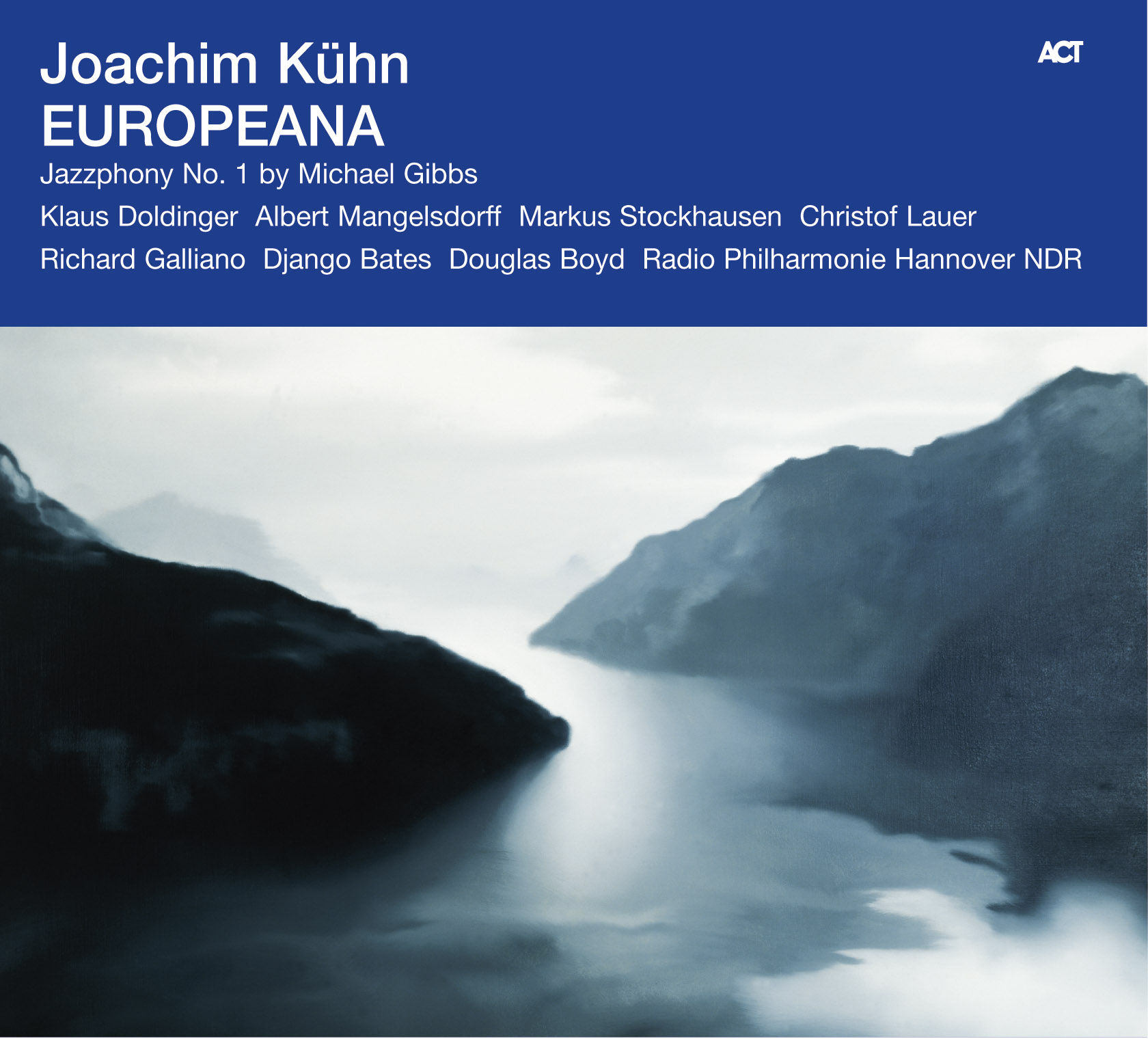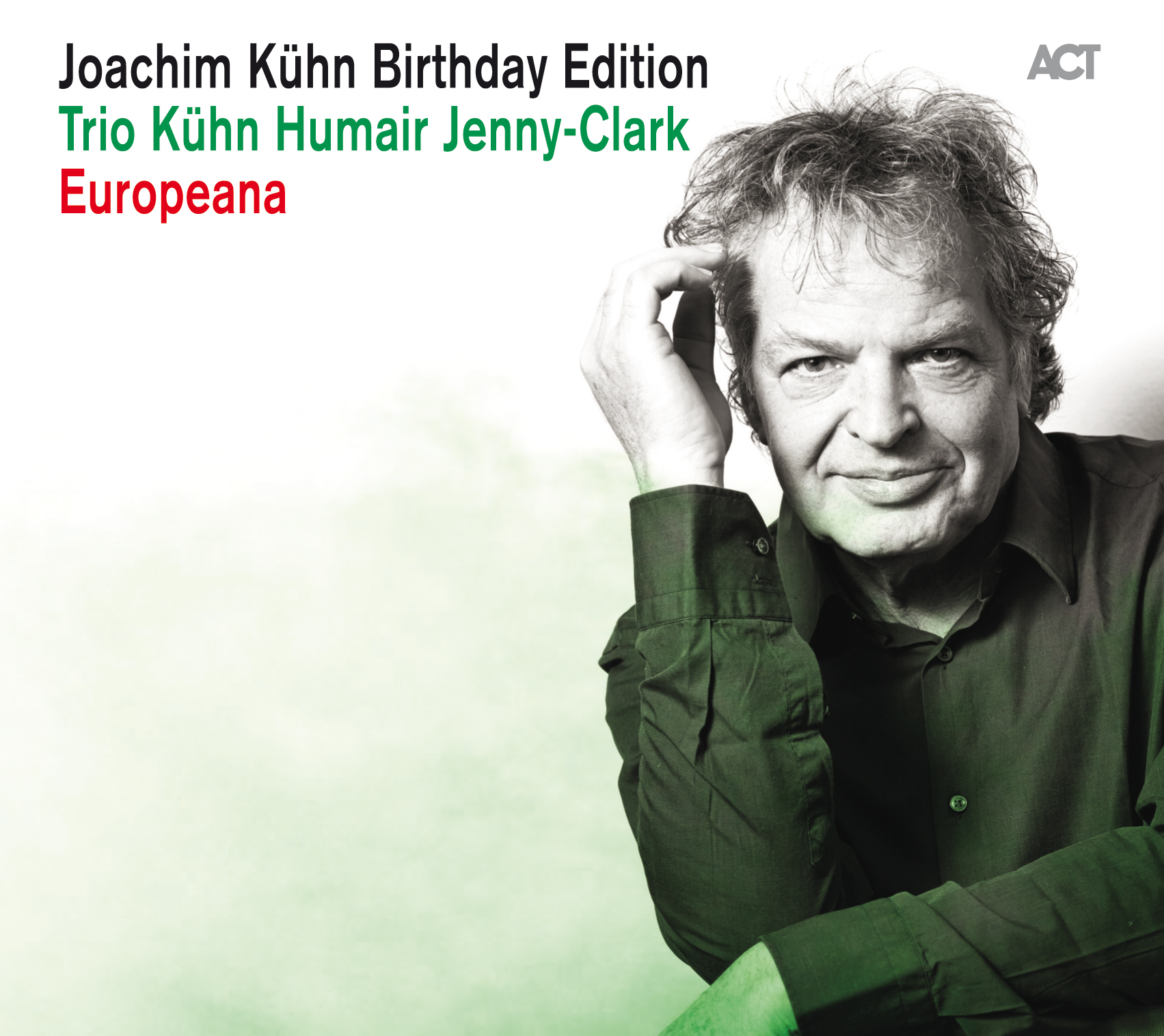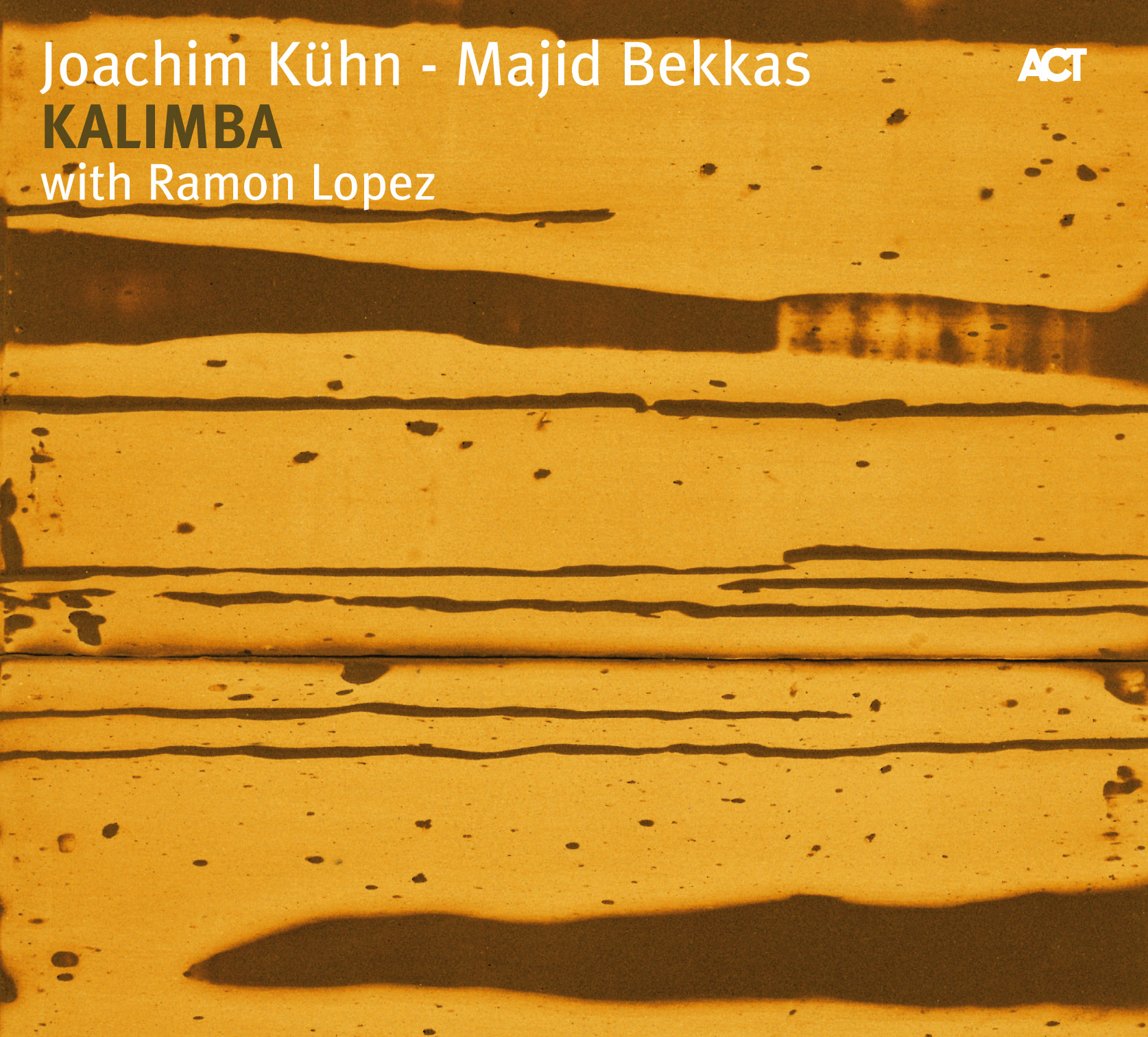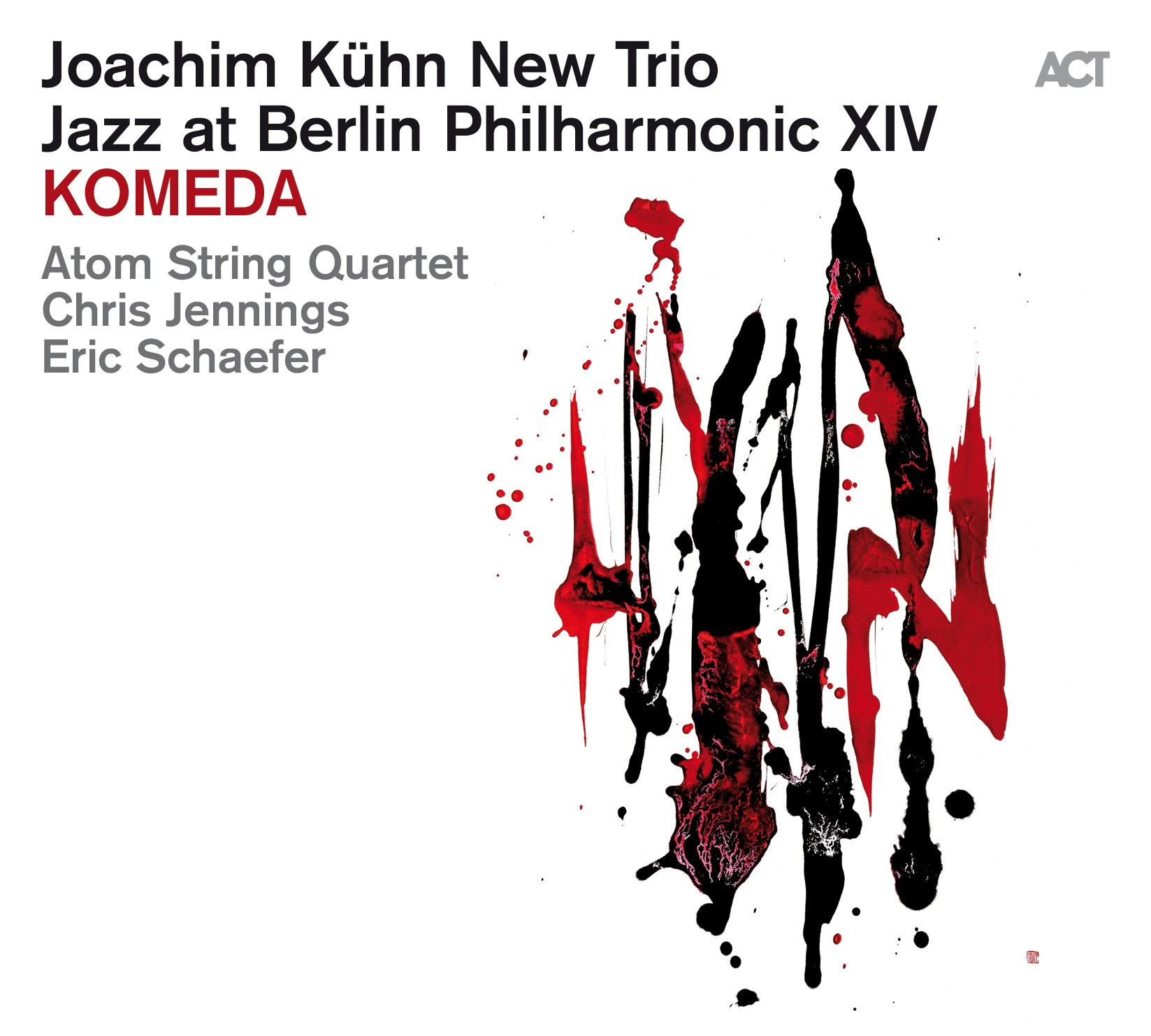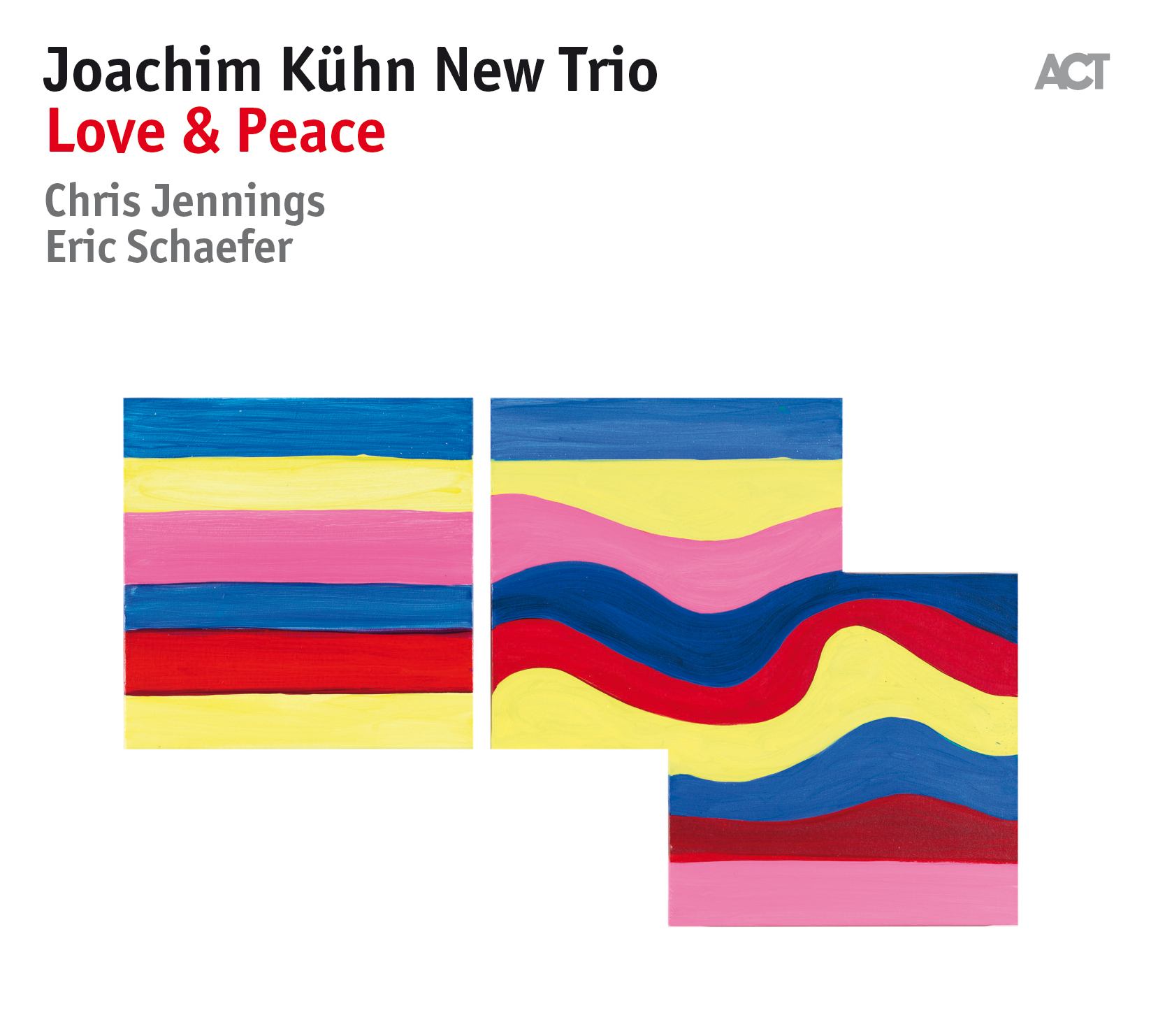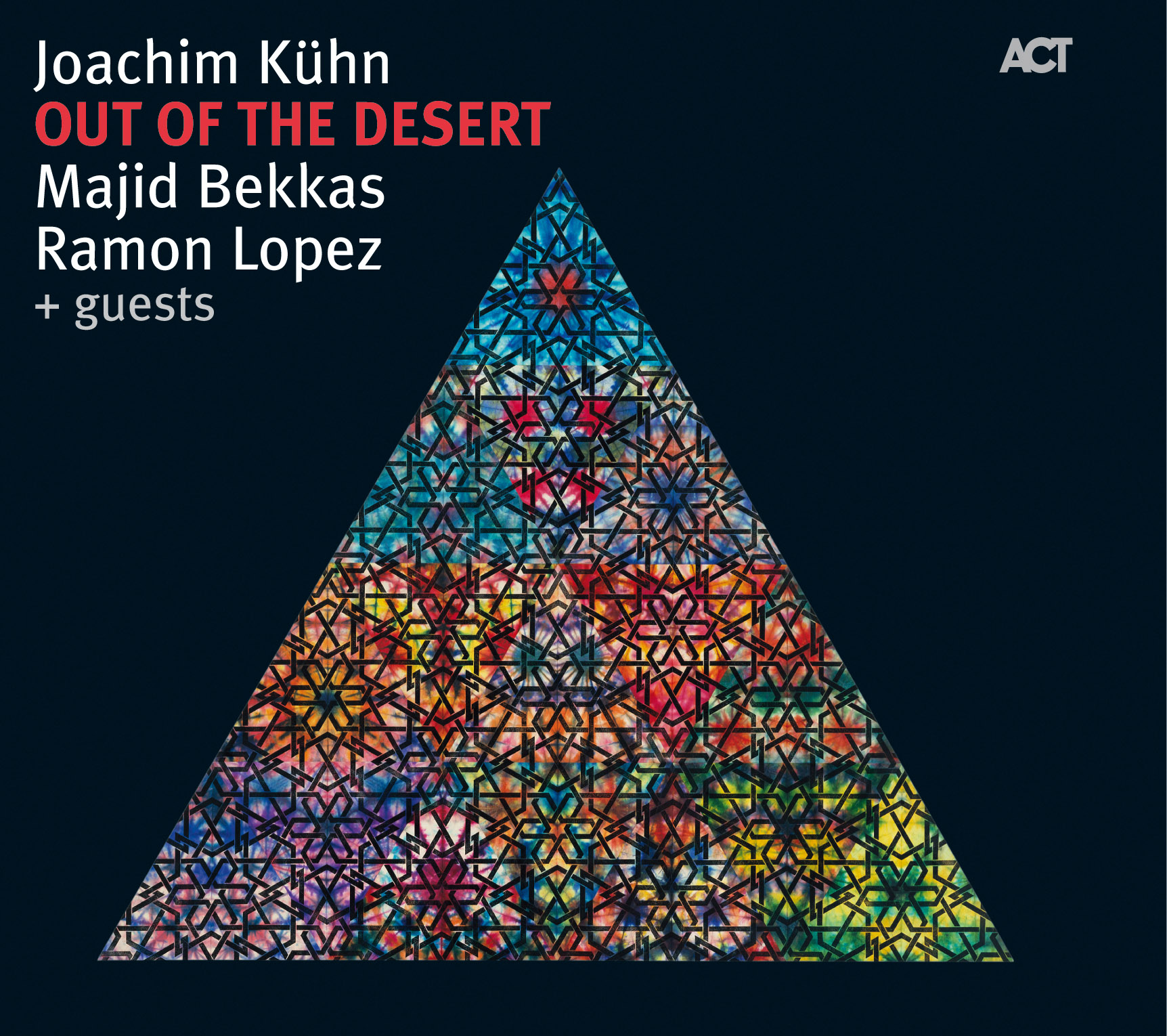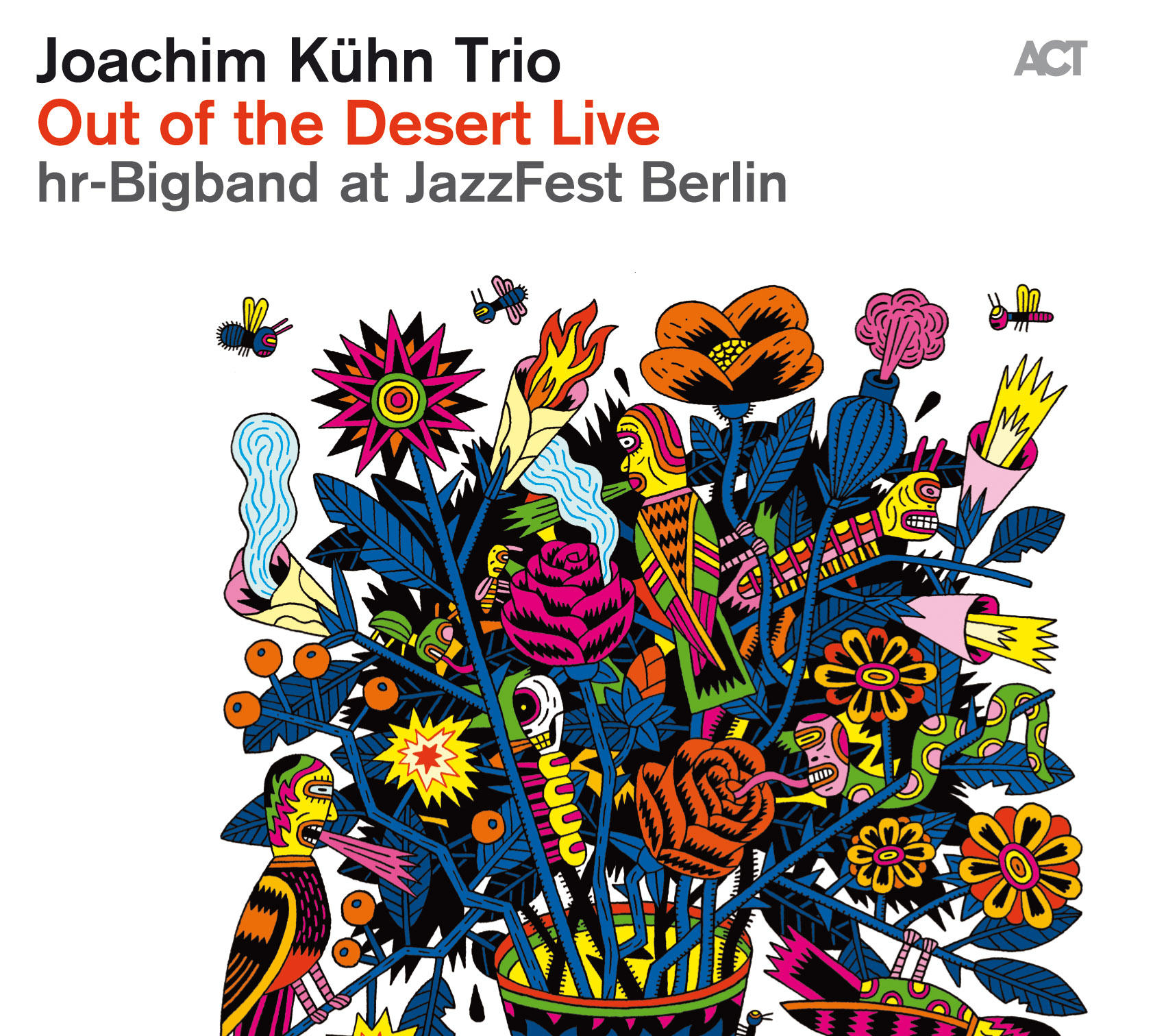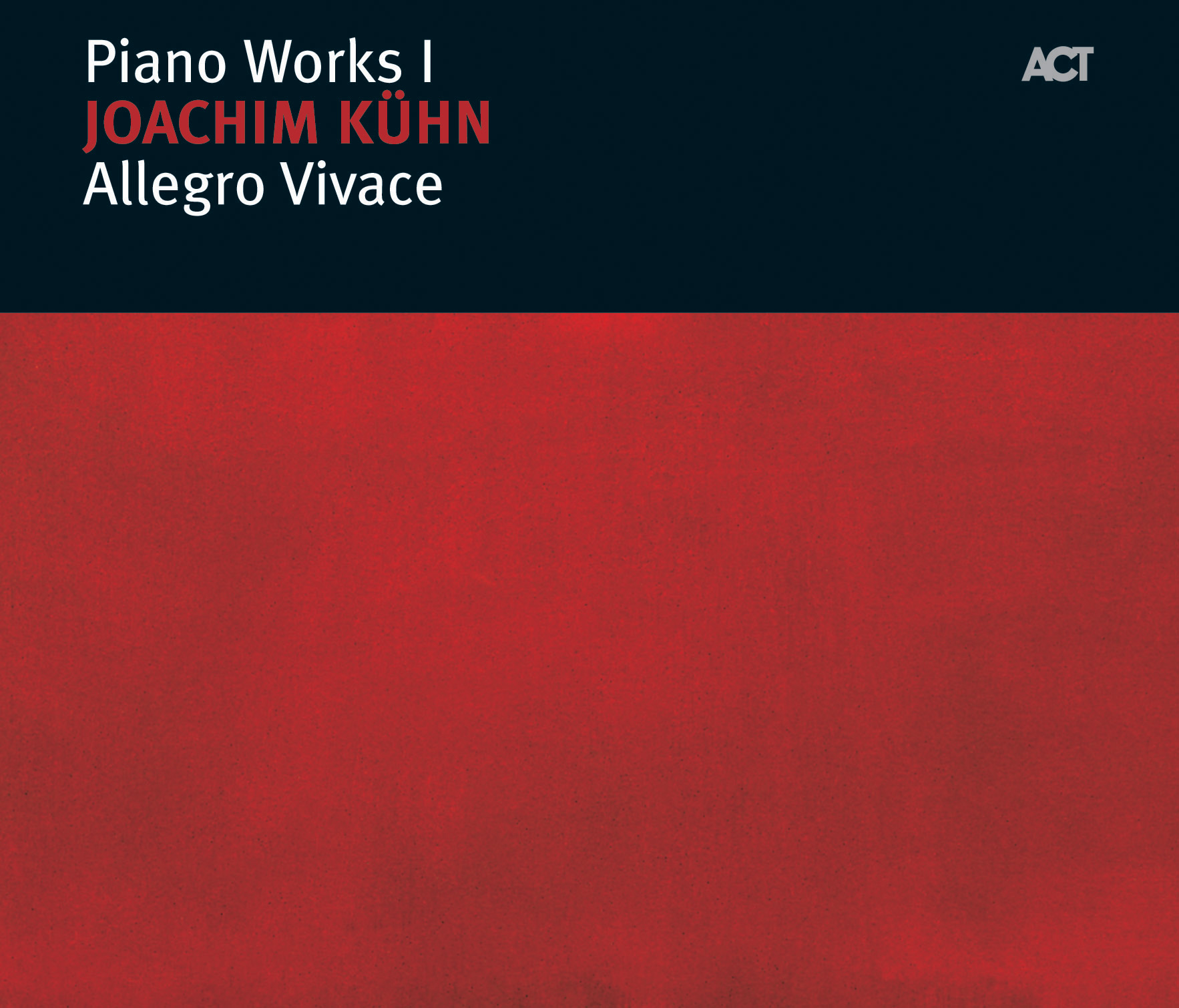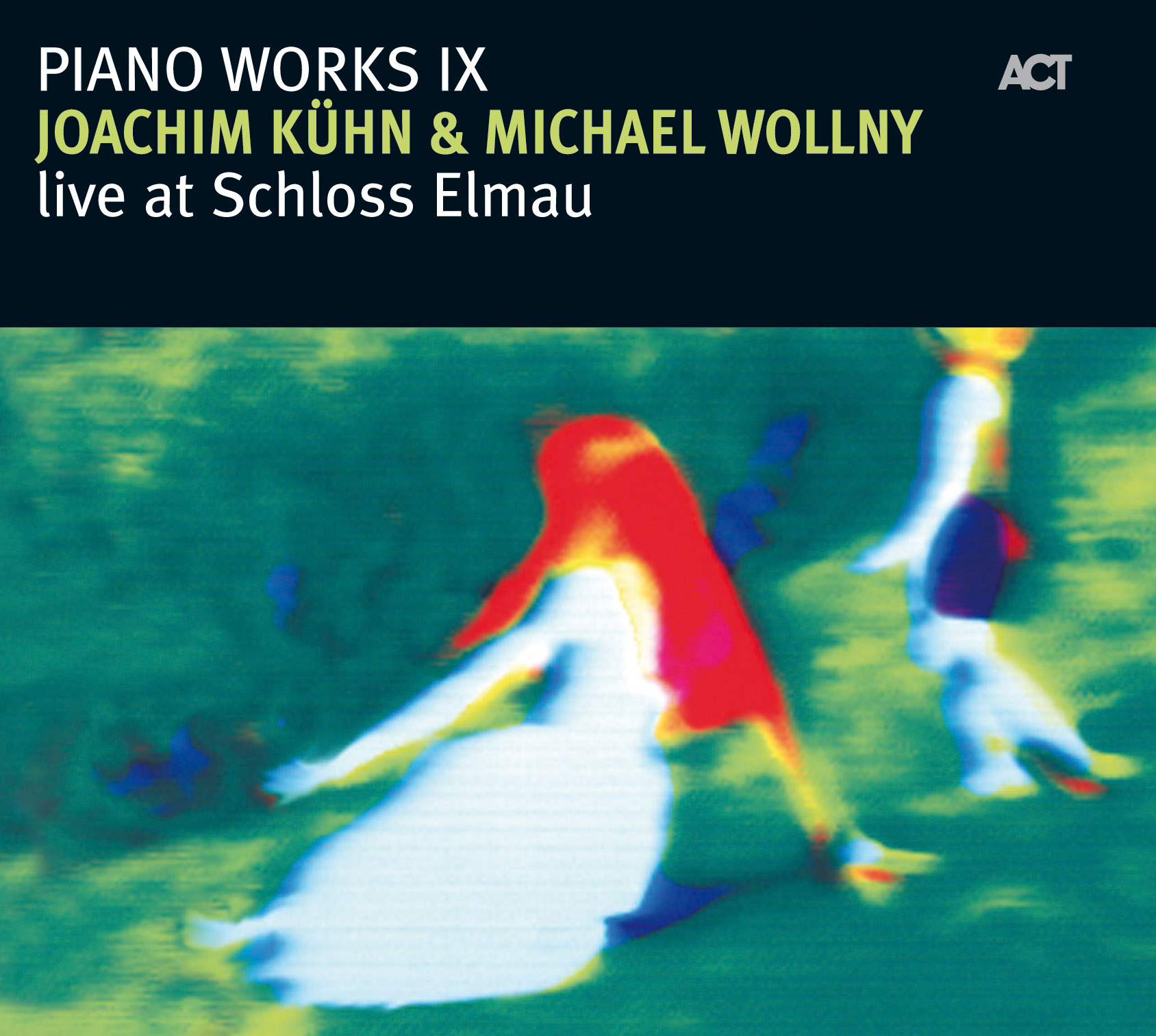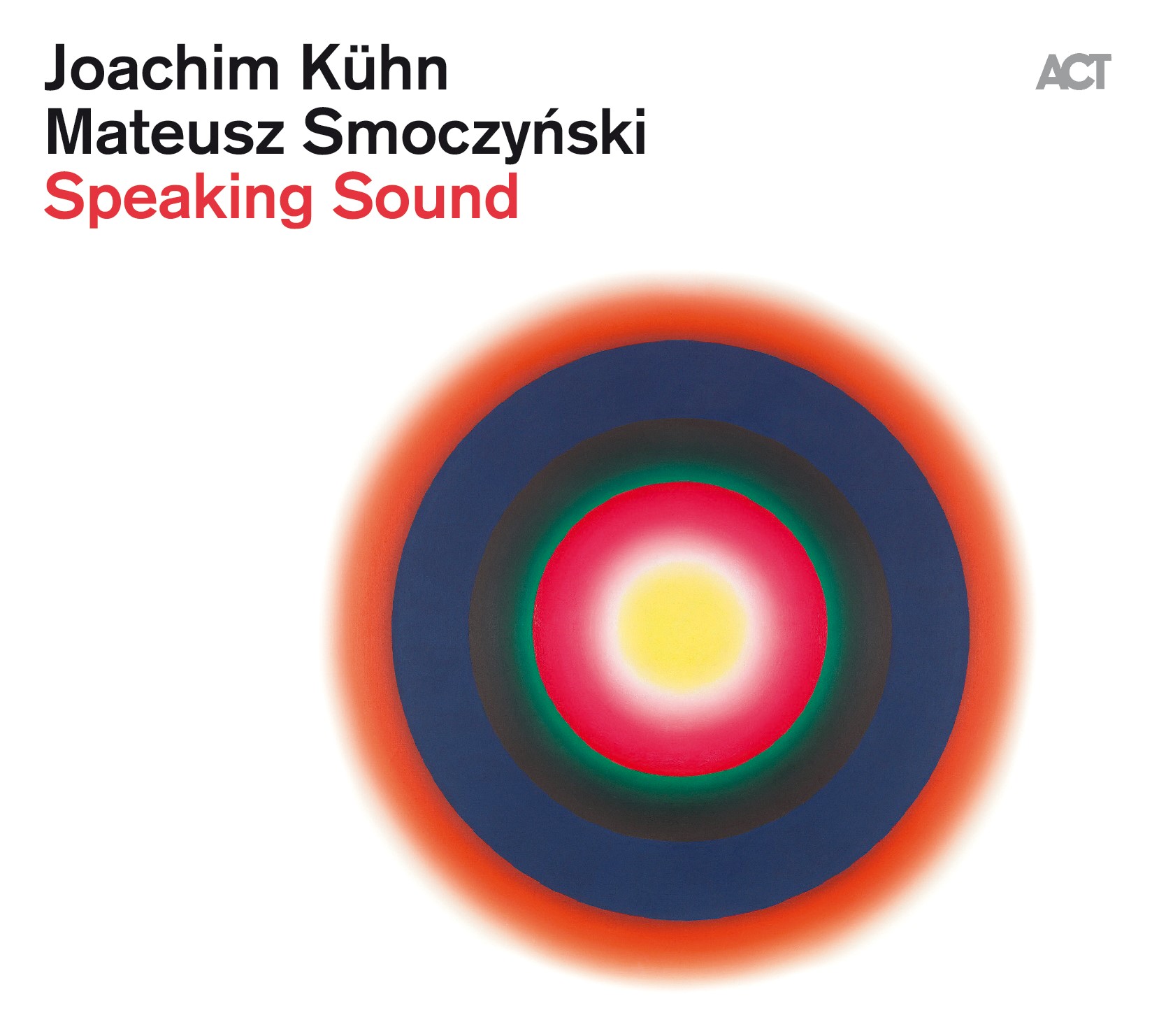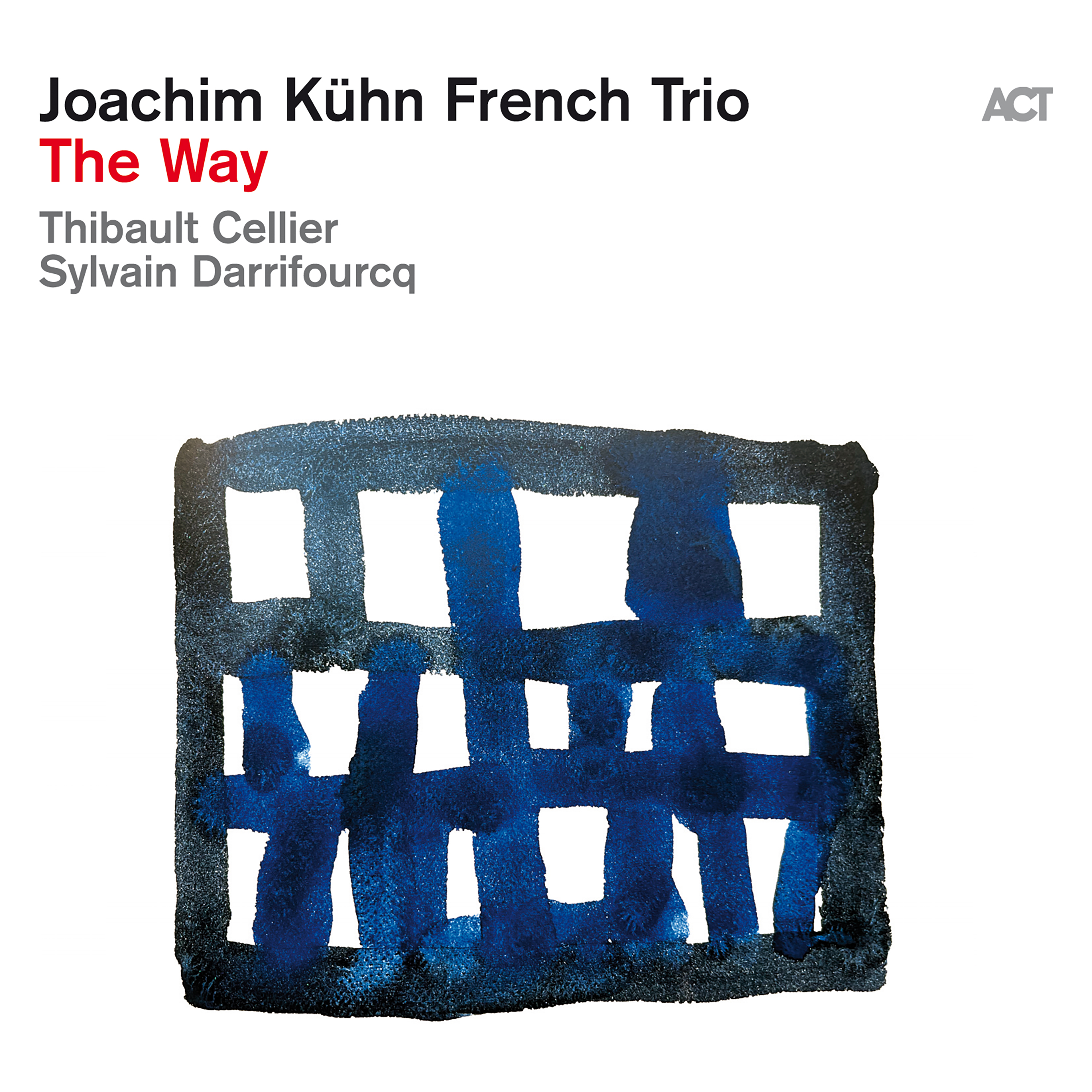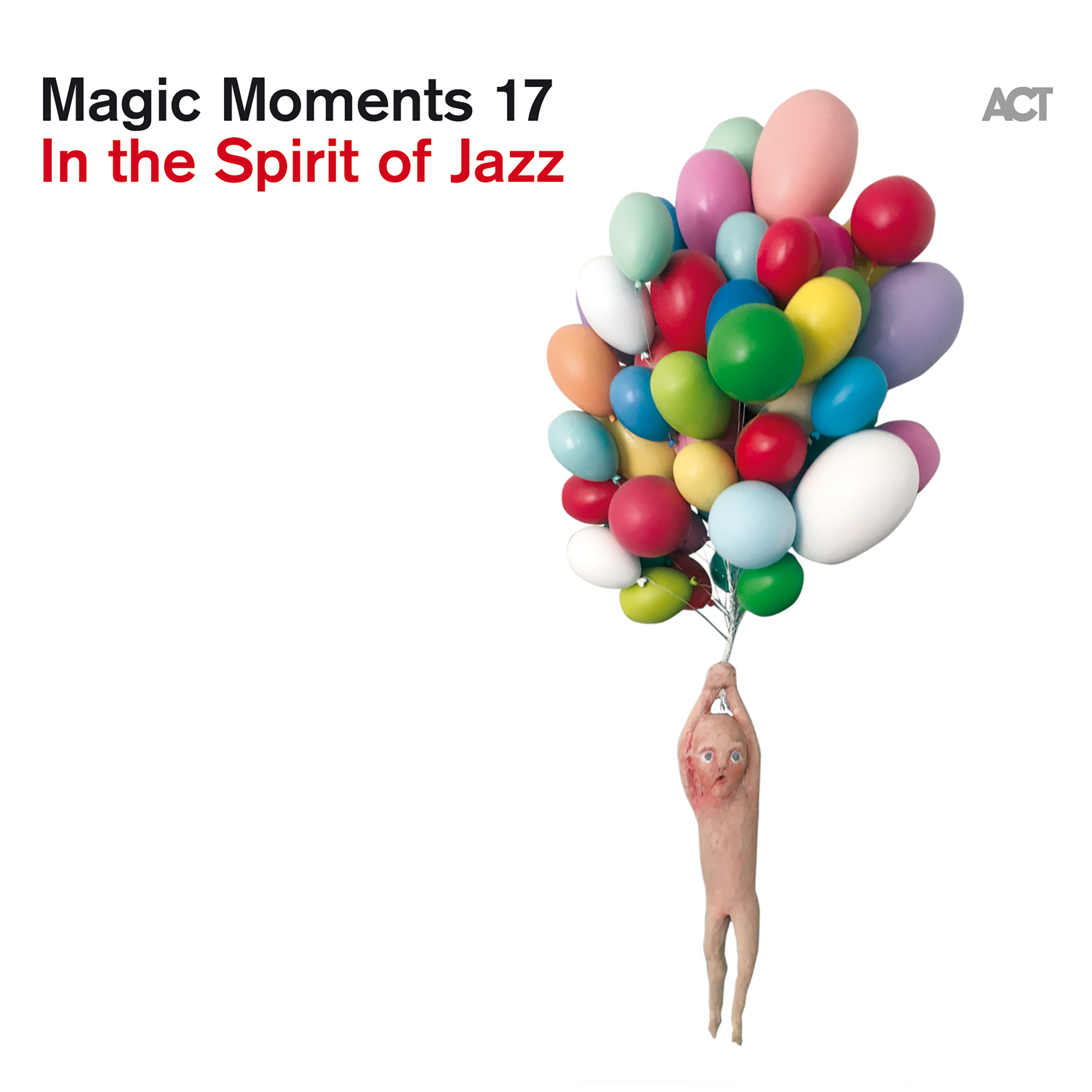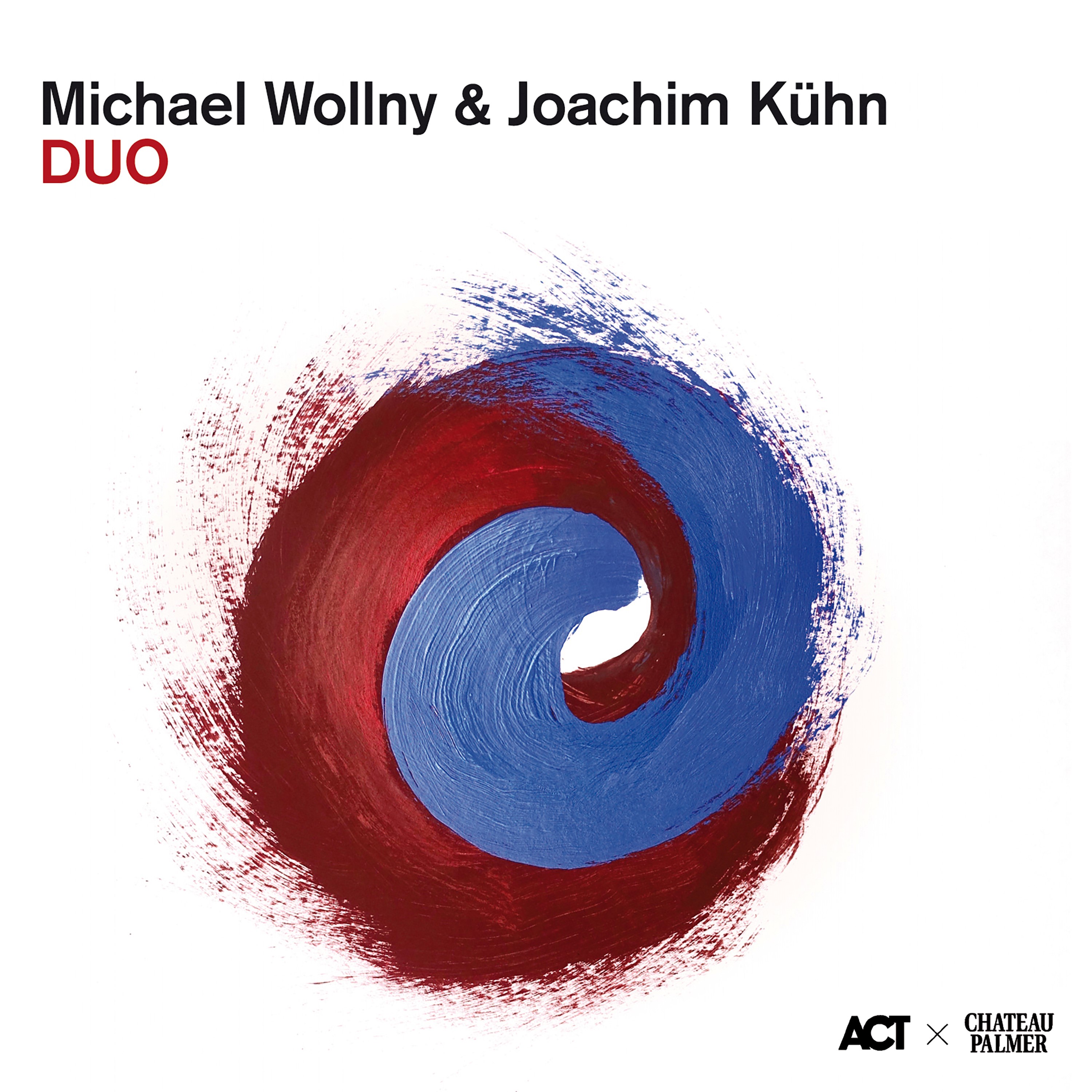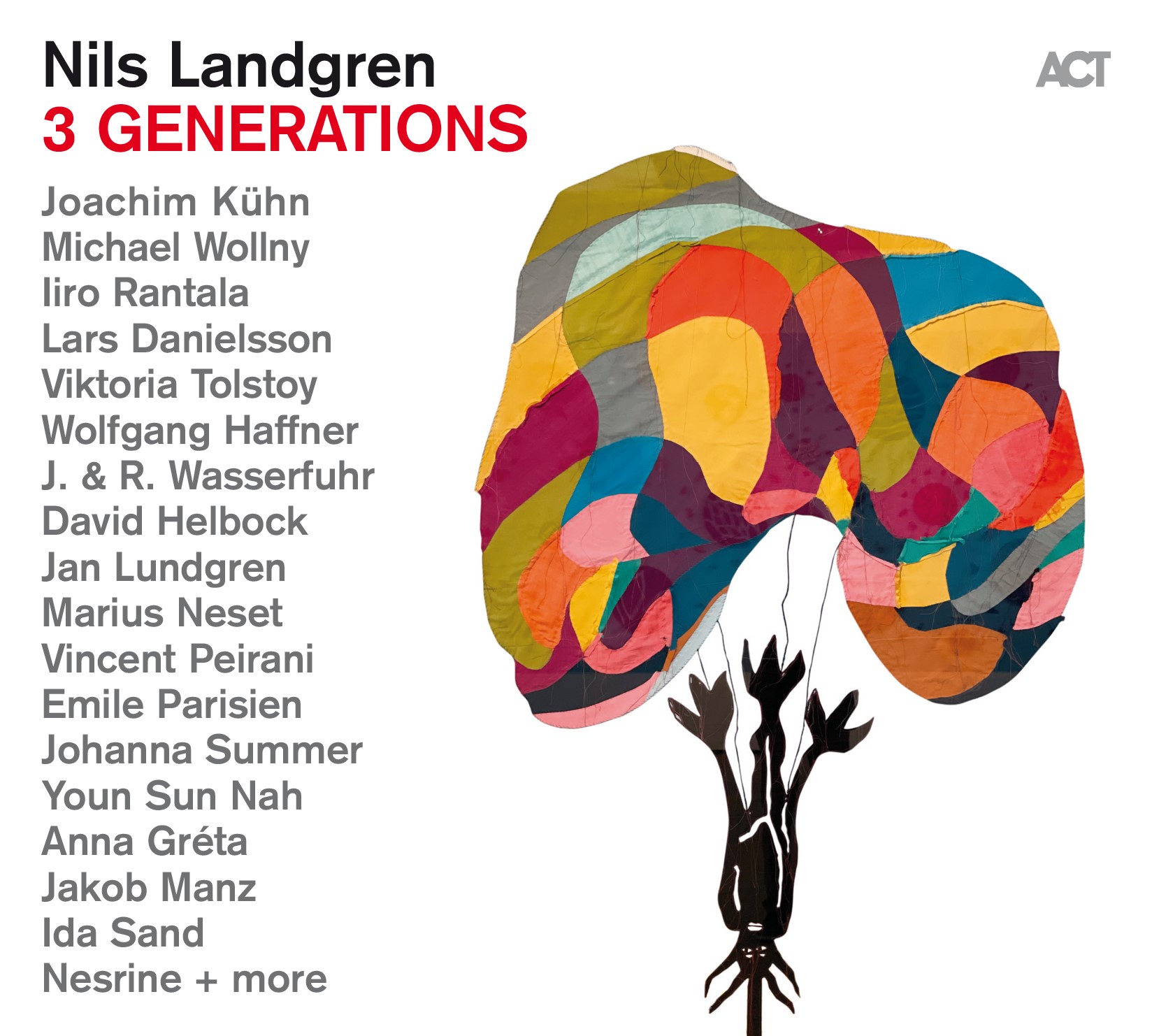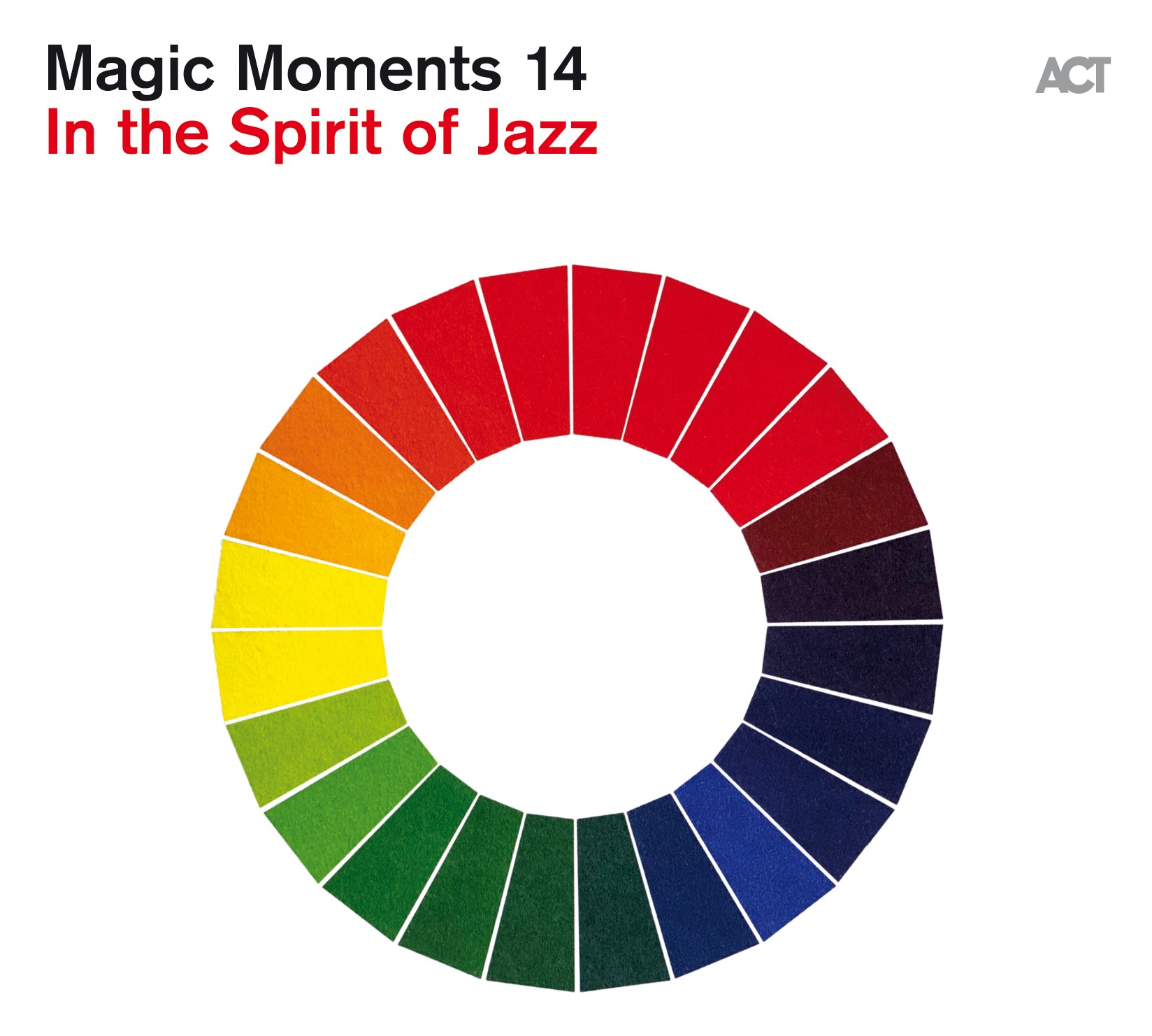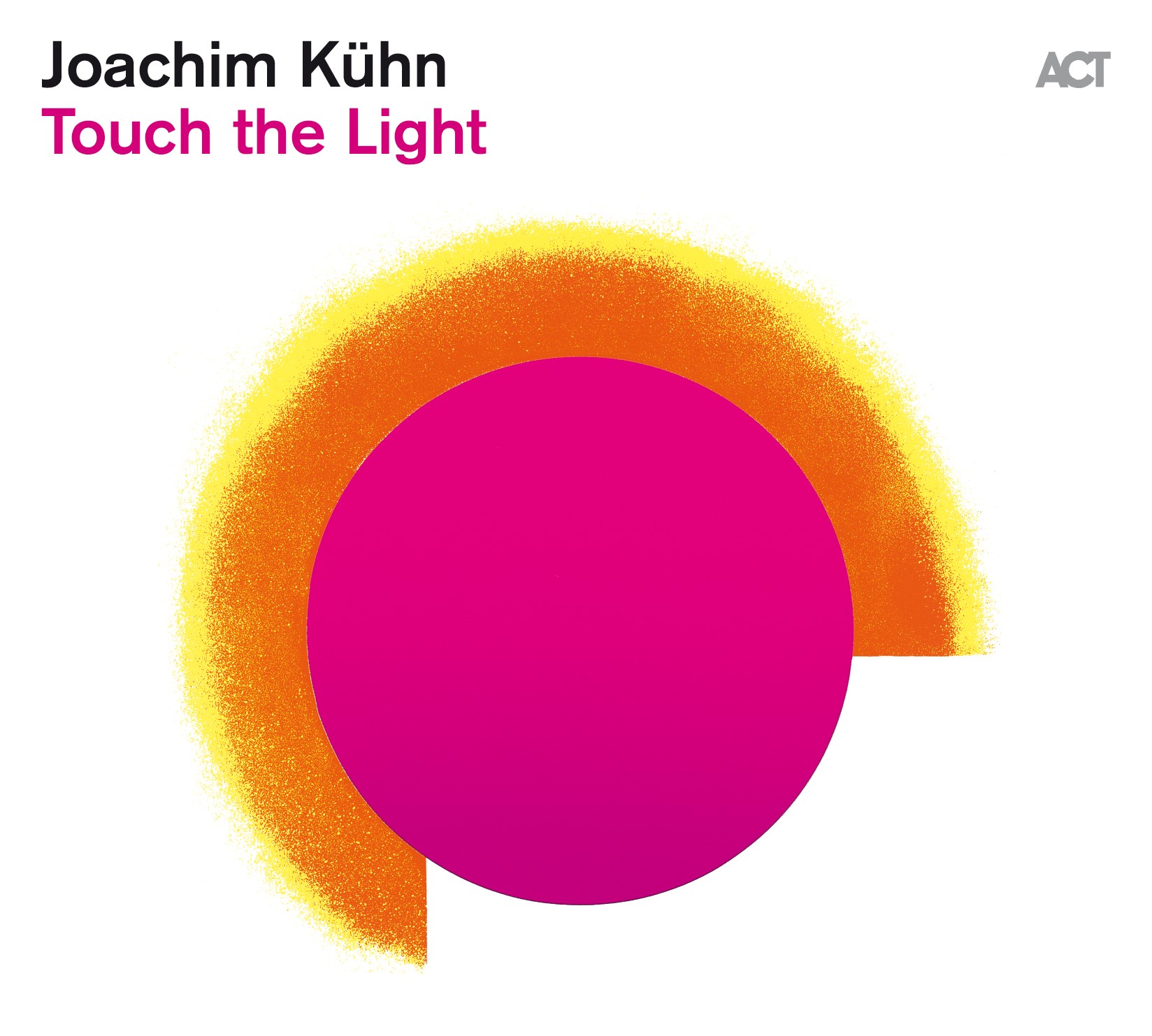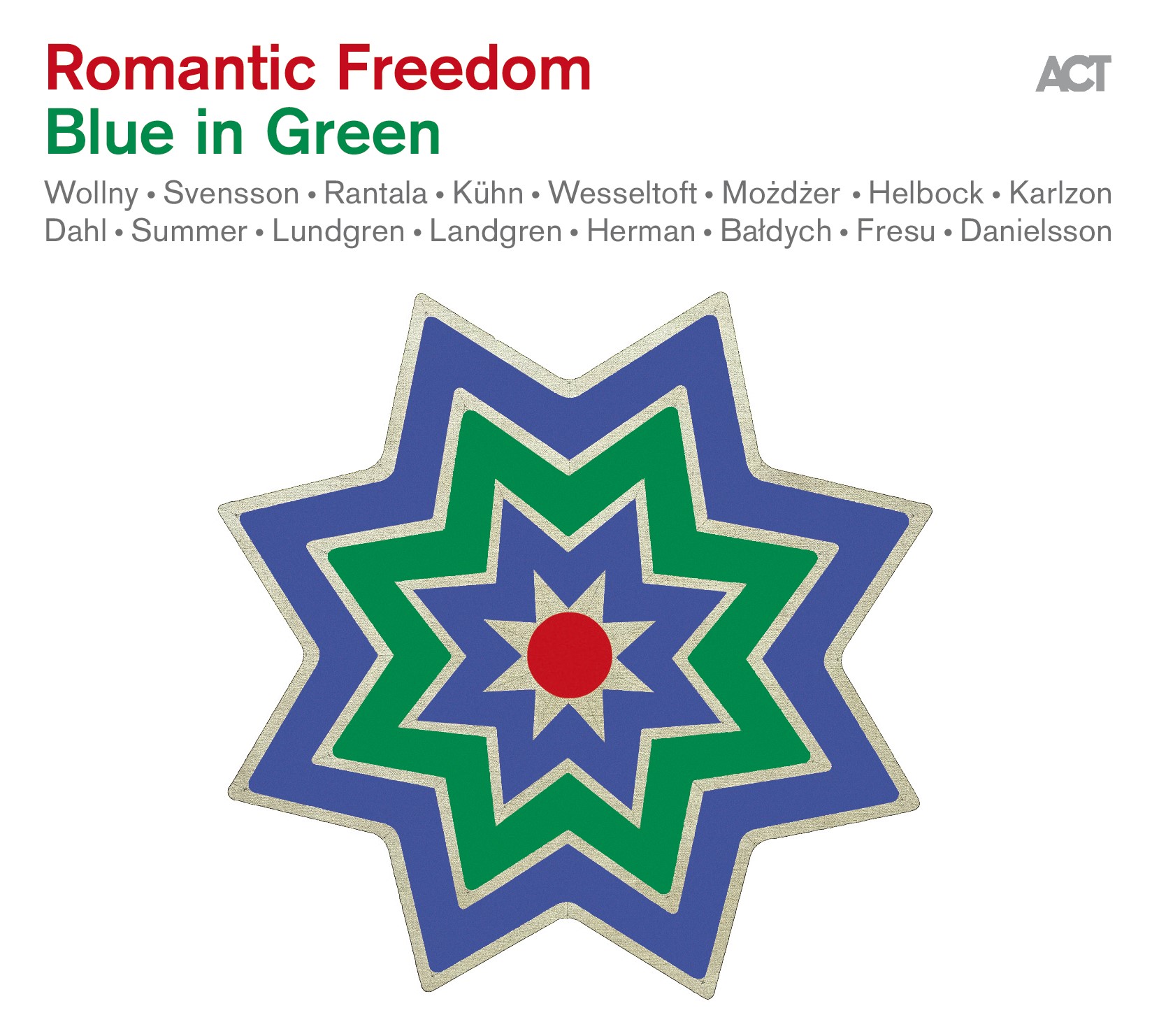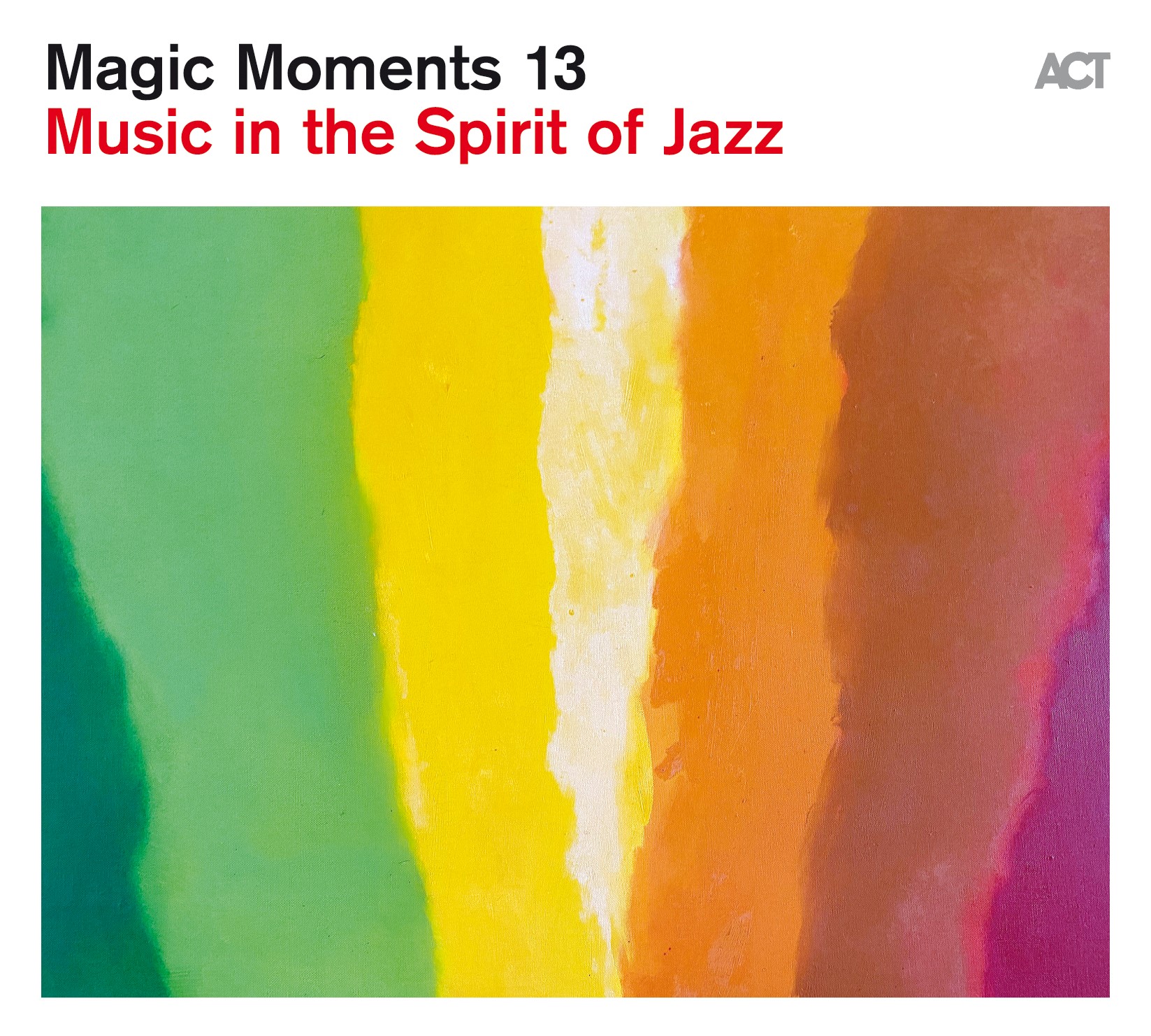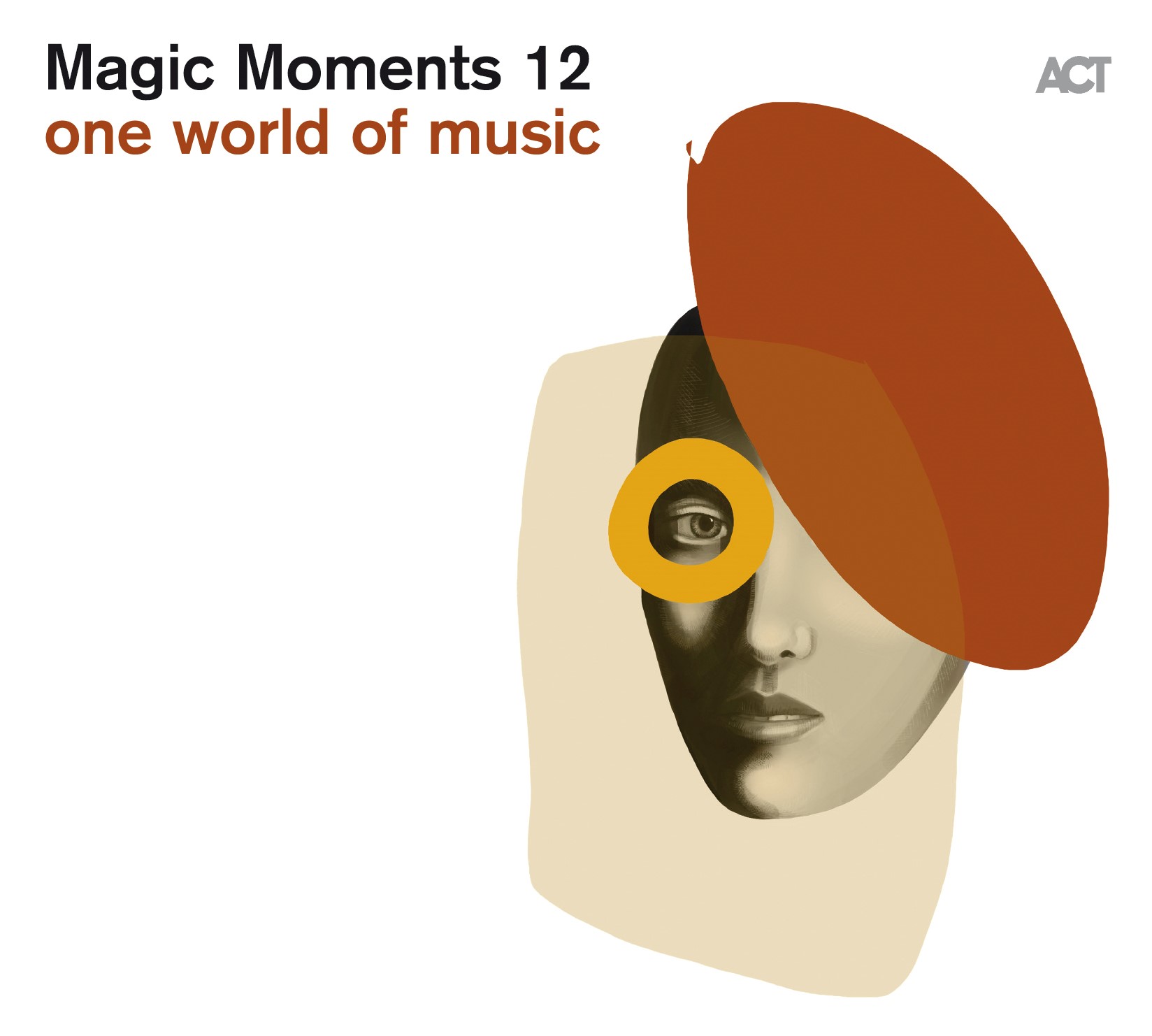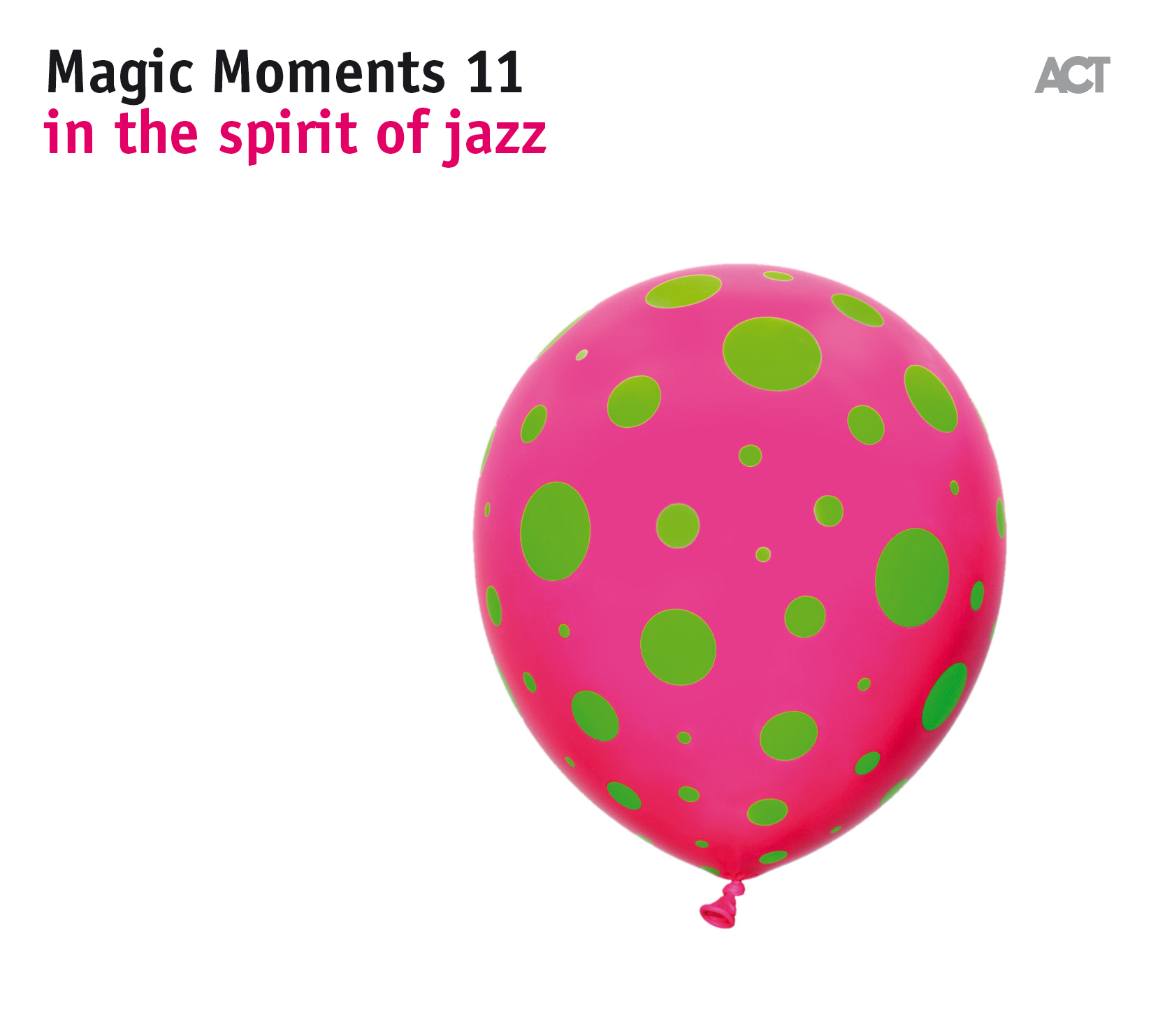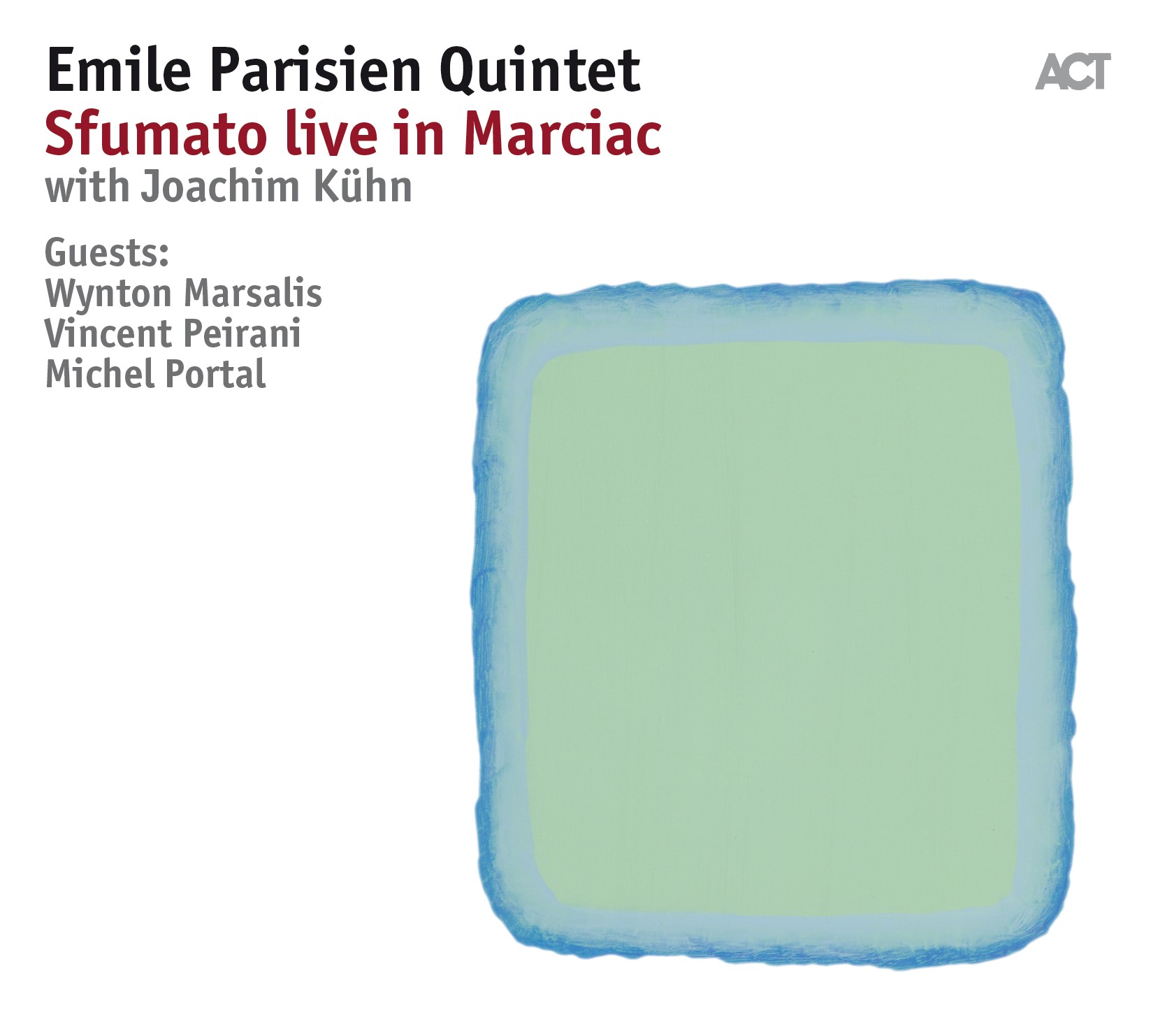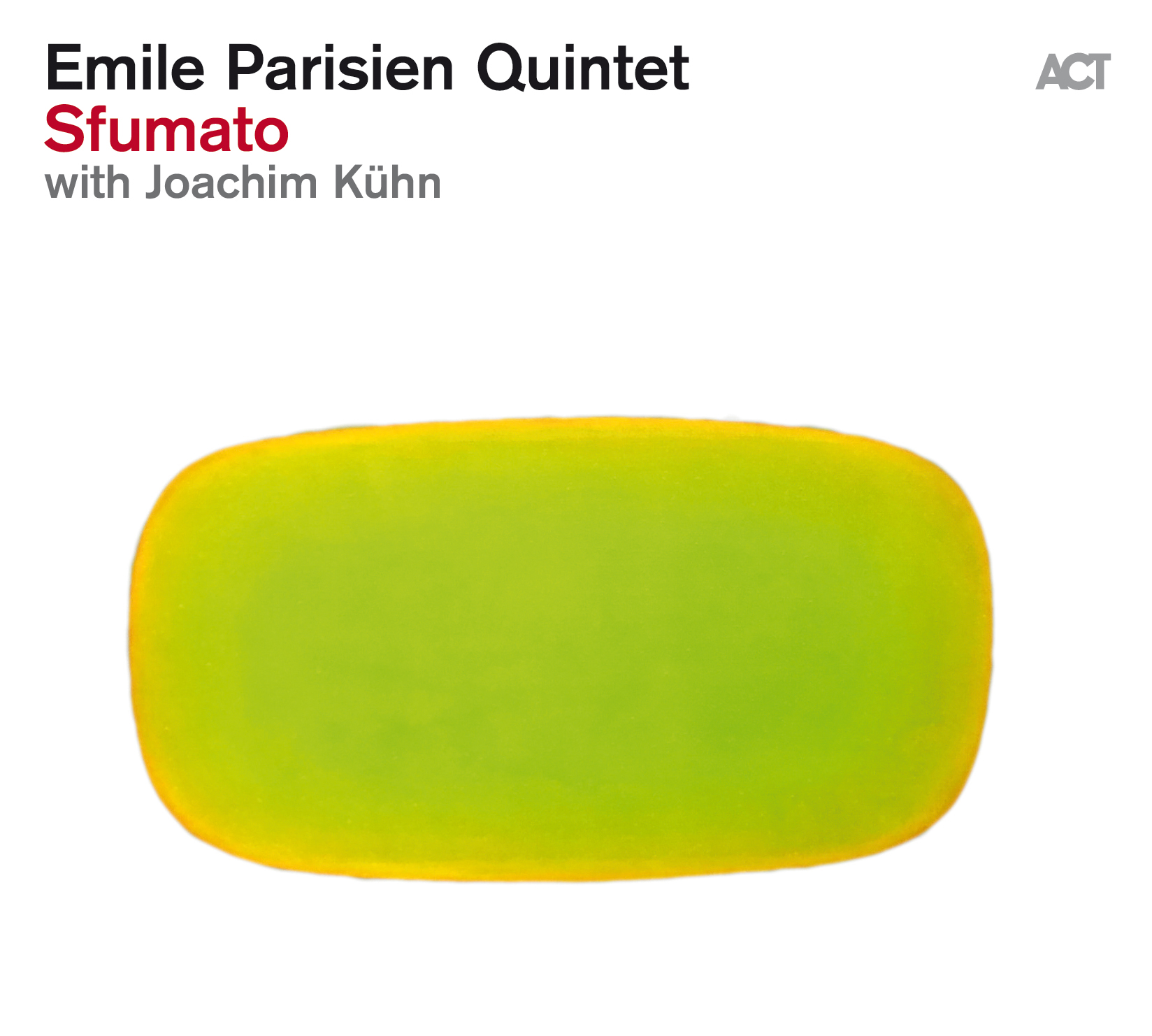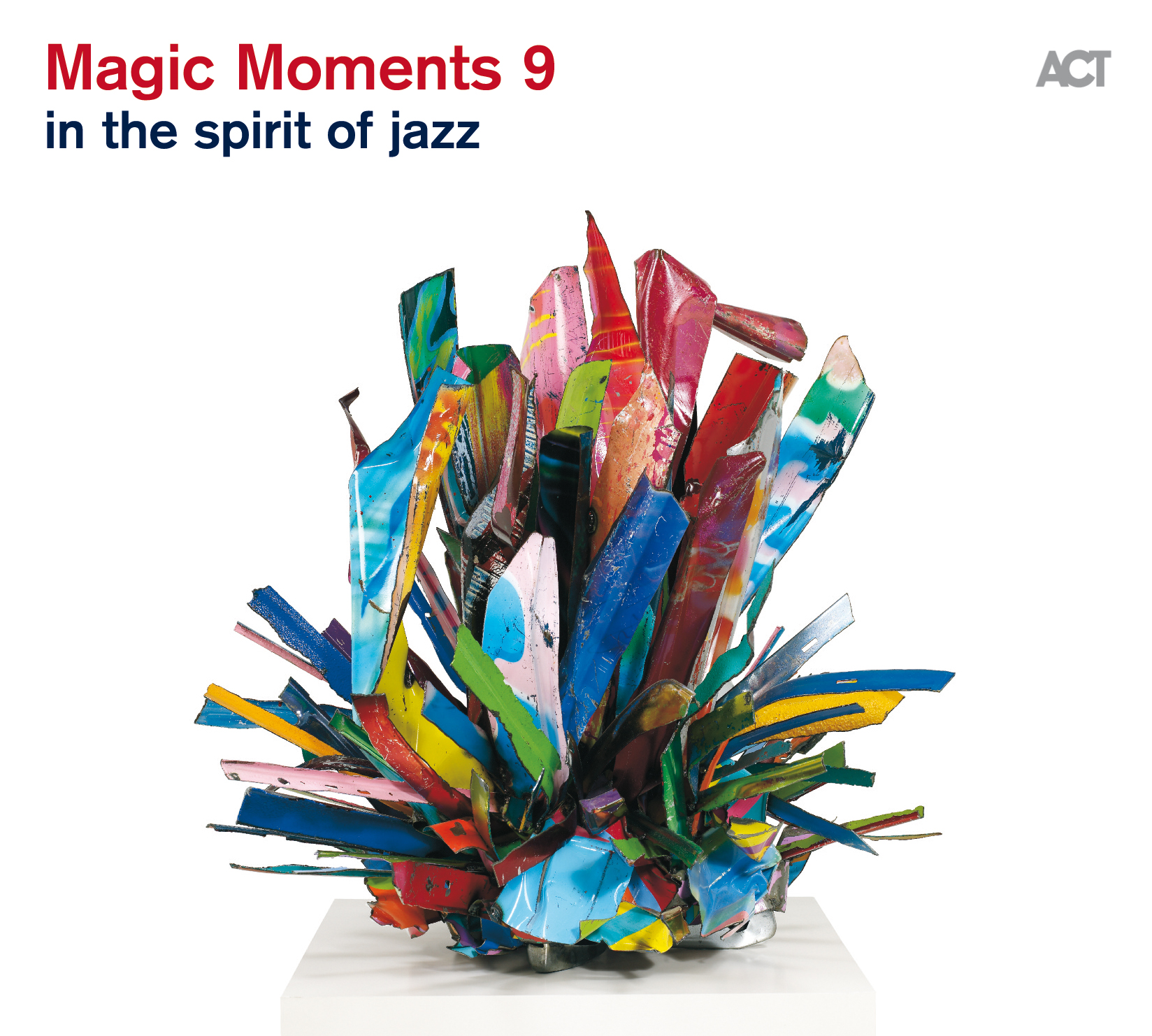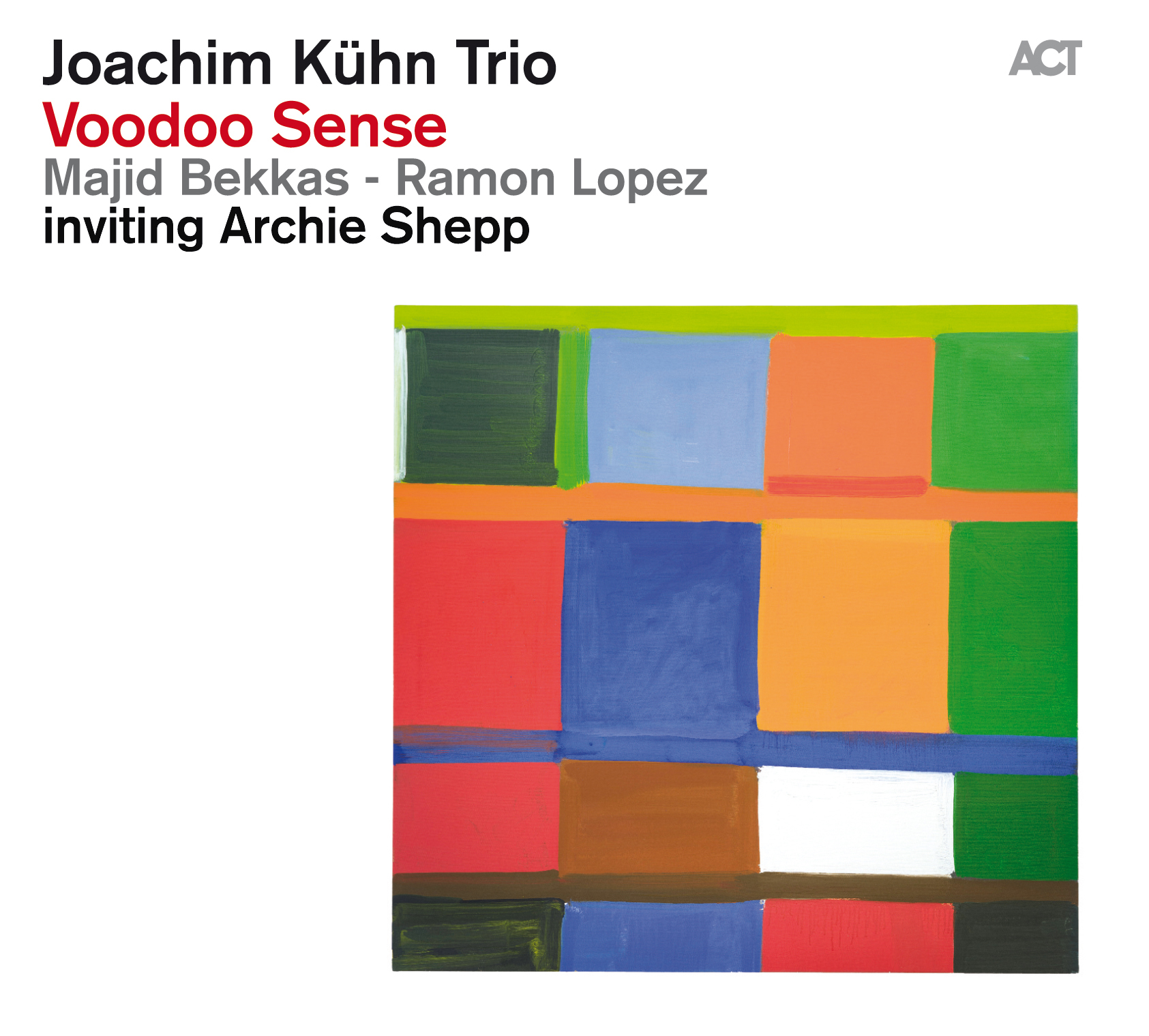Back
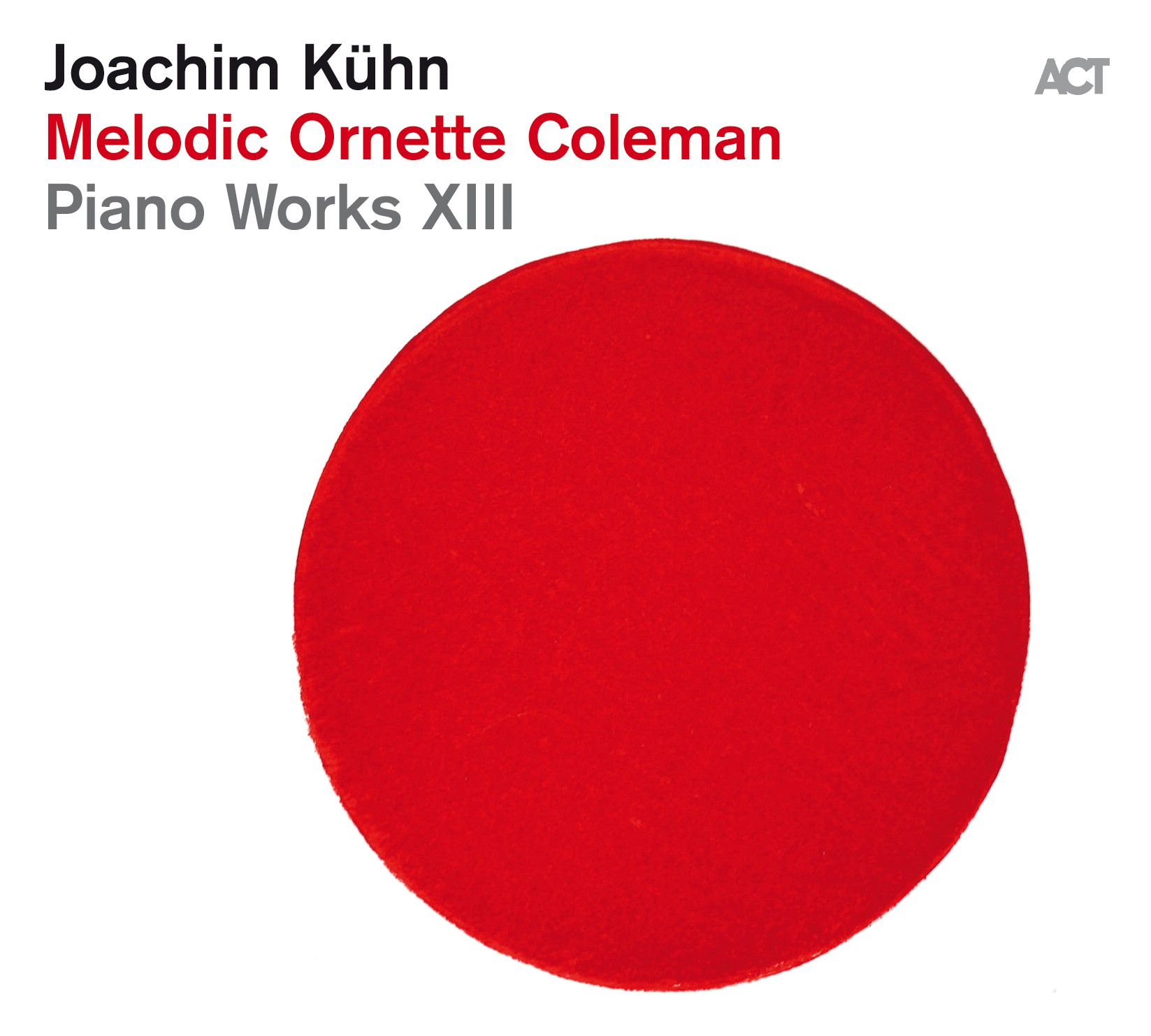
![Melodic Ornette Coleman Melodic Ornette Coleman]()


VÖ: 22.02.2019
Genre: Piano Jazz
"A genuinely gorgeous, musically complex, apt tribute to a great harmolodist."-Jazz Times (US)
Joachim Kühn / piano
Pianist Joachim Kühn is already a jazz legend within his own lifetime. But he is not one to rest on the laurels of his reputation or of his international success; he is still extraordinarily productive and active. Whether in his New Trio with Eric Schaefer and Chris Jennings, or in various other settings and guest appearances (with Archie Shepp, Pharoah Sanders, Michel Portal, Daniel Humair or his brother Rolf) or as a member of Emile Parisien’s Quintet, Kühn is still very much at the forefront of today’s jazz life. And considering the workload he takes on, it is hard to believe that he will soon be reaching the age of 75, on 15 March next year. As is to be expected, Kühn won’t be celebrating this occasion by putting his feet up on the sofa; he has a new project. And those who know him well will also not be surprised to hear that the centre of attention is not going to be Kühn himself. The spotlight will be on a much-missed colleague, friend, and his most important source of inspiration over the past few decades, Ornette Coleman.
When Coleman and Kühn first met in Paris in the early nineties, it was the beginning of a remarkable artistic relationship. Following their first duo concert in the vast arena in Verona in Italy, Kühn, 14 years younger than Coleman, became the only pianist with whom the saxophonist, noteworthy for his critical attitude to piano accompanists, would perform regularly in this setting. Later on he also followed Gerri Allen as the pianist in his quartet. "Ornette flew me from Ibiza to New York several times a year," Kühn recalls. "He rented a Steinway grand piano and we would play for a whole week, fourteen hours a day."
And the American jazz icon who died three years ago found a special way to single out the German for the very highest praise: "He doesn't come from jazz, he comes from music". What the two had in common above all was the fact that they understood the conventional harmonic systems (the well-tempered systems of classical music as well as jazz changes) to the point that they could see the limitations, and therefore went on to invent their own: Coleman had his "harmolodics", Kühn has his "diminished augmented system". So it was apposite that when Coleman met the Leipzig-raised Kühn, he should lead the German back to his very first formative musical influence, Johann Sebastian Bach. What happened was that Kühn performed one evening with Coleman and the next with his "Bach Now" project with the famous Thomanerchor Leipzig.
It is very fitting that Kühn should link his significant birthday with the great inspirer Ornette Coleman – and at the same time that he should want to add such a personal chapter to the current series of releases of unknown works by jazz legends. And the reasons become clear when he explains the background to the new album "Melodic Ornette Coleman": "From 1995 to 2000 I was able to play 16 concerts with Ornette. Before each concert, he wrote ten new songs, which we had worked out and recorded in his Harmolodic studio in Harlem for a whole week. Since he wanted me to supply the, as he called it, cards (sounds) for his melodies, I was directly involved in the composition process. After the concert, these pieces were never played again. Now I am the only one who has all the recordings and the sheet music of the 170 pieces. So now, after about twenty years, I have reassembled and recorded them for solo piano. Apart from 'Lonely Woman', none of these pieces was ever released by Ornette Coleman."
The Ornette Coleman whom we find in this recording is far more easily accessible than the free jazz firebrand of the early 1960s. Indeed, the jazz icon whose memory Kühn is serving here is the creator of colourful melodies with their roots in the blues. Of course, those colours are not exactly those that one might conventionally expect, and naturally also Kühn makes use of the material for his own purposes, for intuitive inspiration in the moment or to take us on his typically wild rides, but above all here are two soul-mates with a shared imperative to be creative in sound, and to use source material that is in its essence melodic. The melodies are sometimes earthy, almost traditional ("Lost Thoughts"), sometimes cheerfully playful ("Love Is Not Generous, Sex Belongs To Woman"), sometimes longing and melancholic ("Somewhere") or outraged ("The End Of The World").
Kühn rises to these challenges in the magnificent way that is usual for him, he brings that inimitable combination of the finest piano technique with a deep inner understanding of the structures of the pieces, plus the ability to bring shape to them in the moment. And it is evidently in the spirit of Coleman that Kühn should have chosen to record this album not in the studio, but in a haven where he could be unhurried and out of the fray, the music room at his home on Ibiza, and on his own Steinway grand piano. "In music, perfection is a killer," he likes to say, "I wanted the music to be pure, wanted to go deep into it." The result is jazz in progress. It an opportunity not just to celebrate the legacy of one of the most visionary instant composers, but also to honour one of the very greatest pianists.
Joachim Kühn / piano
Pianist Joachim Kühn is already a jazz legend within his own lifetime. But he is not one to rest on the laurels of his reputation or of his international success; he is still extraordinarily productive and active. Whether in his New Trio with Eric Schaefer and Chris Jennings, or in various other settings and guest appearances (with Archie Shepp, Pharoah Sanders, Michel Portal, Daniel Humair or his brother Rolf) or as a member of Emile Parisien’s Quintet, Kühn is still very much at the forefront of today’s jazz life. And considering the workload he takes on, it is hard to believe that he will soon be reaching the age of 75, on 15 March next year. As is to be expected, Kühn won’t be celebrating this occasion by putting his feet up on the sofa; he has a new project. And those who know him well will also not be surprised to hear that the centre of attention is not going to be Kühn himself. The spotlight will be on a much-missed colleague, friend, and his most important source of inspiration over the past few decades, Ornette Coleman.
When Coleman and Kühn first met in Paris in the early nineties, it was the beginning of a remarkable artistic relationship. Following their first duo concert in the vast arena in Verona in Italy, Kühn, 14 years younger than Coleman, became the only pianist with whom the saxophonist, noteworthy for his critical attitude to piano accompanists, would perform regularly in this setting. Later on he also followed Gerri Allen as the pianist in his quartet. "Ornette flew me from Ibiza to New York several times a year," Kühn recalls. "He rented a Steinway grand piano and we would play for a whole week, fourteen hours a day."
And the American jazz icon who died three years ago found a special way to single out the German for the very highest praise: "He doesn't come from jazz, he comes from music". What the two had in common above all was the fact that they understood the conventional harmonic systems (the well-tempered systems of classical music as well as jazz changes) to the point that they could see the limitations, and therefore went on to invent their own: Coleman had his "harmolodics", Kühn has his "diminished augmented system". So it was apposite that when Coleman met the Leipzig-raised Kühn, he should lead the German back to his very first formative musical influence, Johann Sebastian Bach. What happened was that Kühn performed one evening with Coleman and the next with his "Bach Now" project with the famous Thomanerchor Leipzig.
It is very fitting that Kühn should link his significant birthday with the great inspirer Ornette Coleman – and at the same time that he should want to add such a personal chapter to the current series of releases of unknown works by jazz legends. And the reasons become clear when he explains the background to the new album "Melodic Ornette Coleman": "From 1995 to 2000 I was able to play 16 concerts with Ornette. Before each concert, he wrote ten new songs, which we had worked out and recorded in his Harmolodic studio in Harlem for a whole week. Since he wanted me to supply the, as he called it, cards (sounds) for his melodies, I was directly involved in the composition process. After the concert, these pieces were never played again. Now I am the only one who has all the recordings and the sheet music of the 170 pieces. So now, after about twenty years, I have reassembled and recorded them for solo piano. Apart from 'Lonely Woman', none of these pieces was ever released by Ornette Coleman."
The Ornette Coleman whom we find in this recording is far more easily accessible than the free jazz firebrand of the early 1960s. Indeed, the jazz icon whose memory Kühn is serving here is the creator of colourful melodies with their roots in the blues. Of course, those colours are not exactly those that one might conventionally expect, and naturally also Kühn makes use of the material for his own purposes, for intuitive inspiration in the moment or to take us on his typically wild rides, but above all here are two soul-mates with a shared imperative to be creative in sound, and to use source material that is in its essence melodic. The melodies are sometimes earthy, almost traditional ("Lost Thoughts"), sometimes cheerfully playful ("Love Is Not Generous, Sex Belongs To Woman"), sometimes longing and melancholic ("Somewhere") or outraged ("The End Of The World").
Kühn rises to these challenges in the magnificent way that is usual for him, he brings that inimitable combination of the finest piano technique with a deep inner understanding of the structures of the pieces, plus the ability to bring shape to them in the moment. And it is evidently in the spirit of Coleman that Kühn should have chosen to record this album not in the studio, but in a haven where he could be unhurried and out of the fray, the music room at his home on Ibiza, and on his own Steinway grand piano. "In music, perfection is a killer," he likes to say, "I wanted the music to be pure, wanted to go deep into it." The result is jazz in progress. It an opportunity not just to celebrate the legacy of one of the most visionary instant composers, but also to honour one of the very greatest pianists.
Joachim Kühn
Around his 80th birthday on 15 March 2024, the piano artistry of Joachim Kühn, Germany’s pre-eminent jazz pianist, is in its prime. Whereas he is able to draw on a vast wealth of experience from a life fully lived, his powers to concentrate entirely on the present and to live in the moment - things he has done all his life - are undimmed. Kühn’s 80th birthday is also a good moment to reflect on the extent to which the pianist has broken through internationally, and now has his place among the greats in a way that no other jazz pianist from Germany has achieved. He can look back on decades of creative work in which he has not just witnessed jazz history and adapted miraculously to it, but has also taken a role in shaping it and carrying it forward. Joachim Kühn has had a 50-year association with ACT founder Siggi Loch, stretching back to 1972 and the album "Springfever", released on Atlantic Records. Their partnership has prospered on ACT since 1992 and found a fruitful continuation in the current decade under Andreas Brandis. Kühn's 19 albums on ACT show a musician with a kaleidoscopic range. At the larger end of the scale is the jazz symphony "Europeana", other highlights include the Kühn / Bekkas / Lopez trio, which links North Africa with Europe, the Joachim Kühn New Trio, his fruitful cross-generational duo with Michael Wollny, and several solo recordings. In his playing, Joachim Kühn combines an irrepressible striving for artistic freedom with an unerring sense of musical quality in a way that is always truly compelling. Another hallmark is the way in which his playful lightness is always tinged with such strong and deep emotion. Each of Joachim Kühn's concerts or recordings is a special event. His beguiling improvisations unfold and develop in such fascinating ways, they seem to be happening of their own accord. And this is true not just of his solo performances, but equally in both his work in the New Trio with bassist Chris Jennings and drummer Eric Schaefer and his duo with Michael Wollny, - thirty-five years younger than him - which has been documented on two ACT albums, most recently "DUO", released in early 2024. Kühn and Wollny are kindred spirits in the depth of their musical sensibilities, in their exuberant imagination, their determination never to compromise artistically, and in their endeavours to transcend musical boundaries. Alongside echoes of the great classical and romantic piano tradition, Joachim Kühn - particularly in the trio- reveals how strongly and how fully he has assimilated the essence of jazz. Shadows and resonances of the past are transformed alchemically into an innovatively orientated sound language which is wholly his own.
Joachim Kühn's career is remarkable in the way it embraces different eras, countries and continents, and yet, despite the musical and political upheavals of the pianist’s eight decades, there is a constant: the pursuit of musical freedom. Born in Leipzig in 1944, he has had a homing instinct for the greats of the music since his earliest youth: John Coltrane, Ornette Coleman, Bach. His older brother, clarinettist Rolf Kühn, became his role model and later his musical partner. He had a long, intense and significant collaboration with his early idol Ornette Coleman. And his admiration for Johann Sebastian Bach became a powerful memory in his joint music-making with the choir from Bach’s own church, the Leipzig Thomanerchor. Joachim Kühn's career in music has been so many-faceted, a brief summary will never do it justice: free jazz in the cauldron of the sixties in Paris, fusion music in California, modern jazz in New York, solos, duos, trios, countless records, and finally the decision to settle in Ibiza, which is the base from which the pianist travels the world.
For someone like Joachim Kühn, who lives one hundred per cent through his immersion in music, there is no standing still. He is driven by a force within which leads him to continue to develop all the time. It would be understandable if he were just to stand back and take pride in all that he has achieved - but he won't. He has played with the elite of jazz, with musicians such as Ornette Coleman, Archie Shepp, Pharoah Sanders and Joe Henderson. He recorded "Impressions Of New York" with his brother Rolf and Coltrane's bassist Jimmy Garrison. His trio with Daniel Humair and Jean-François Jenny-Clark became an integral part of European jazz history. And in the trios with Majid Bekkas / Ramón López and Rabih Abou-Khalil, he succeeded in opening up jazz to the cultures of the world. But for this pianist, the search is never-ending. He threw off all constraints and limits from the perspective of technique long ago. What matters to him, he says, is pure music. And to make it with the greatest urgency and truthfulness.
CD
€17.50*
CD
€17.50*
Vinyl
€27.00*
SACD
€18.00*
2-CD
€20.00*
CD
€17.50*
CD
€17.50*
CD
€17.50*
CD
€17.50*
CD
€17.50*
New
Joachim Kühn
New
Vinyl
€27.00*
Tip
CD
€12.90*
CD
€17.50*
CD/DVD
€20.00*
CD
€17.50*
€17.50*
€17.50*
CD
€17.50*
2-CD
€20.00*
€17.50*
